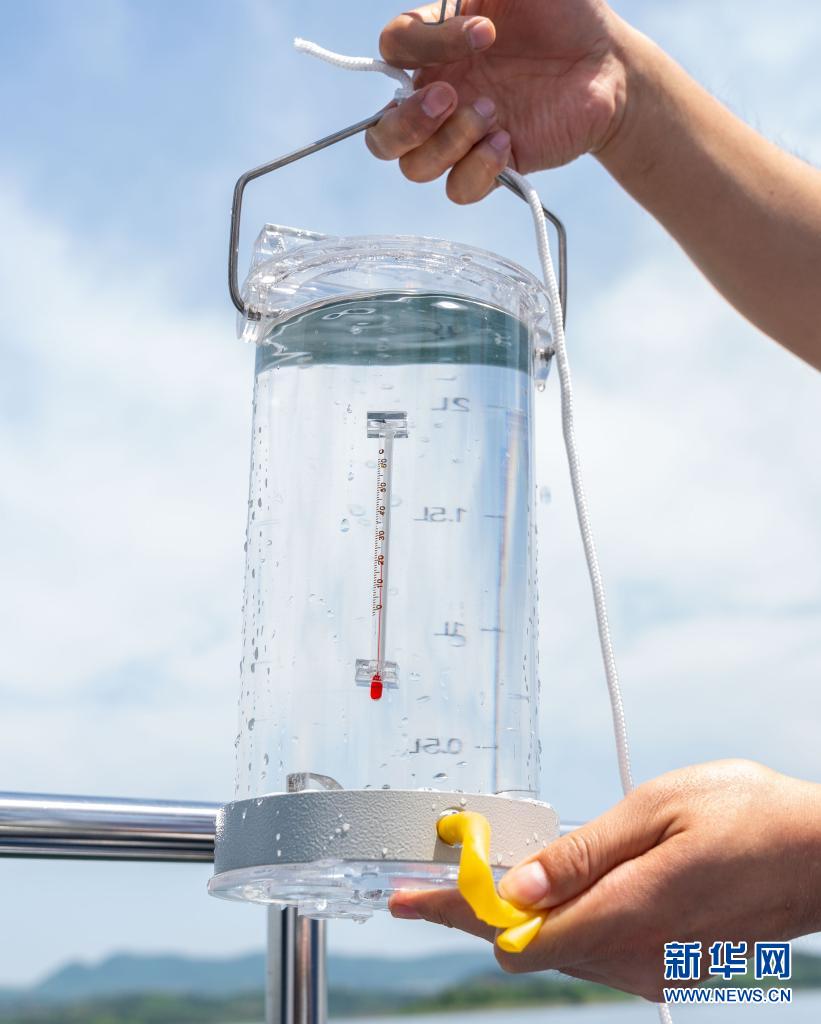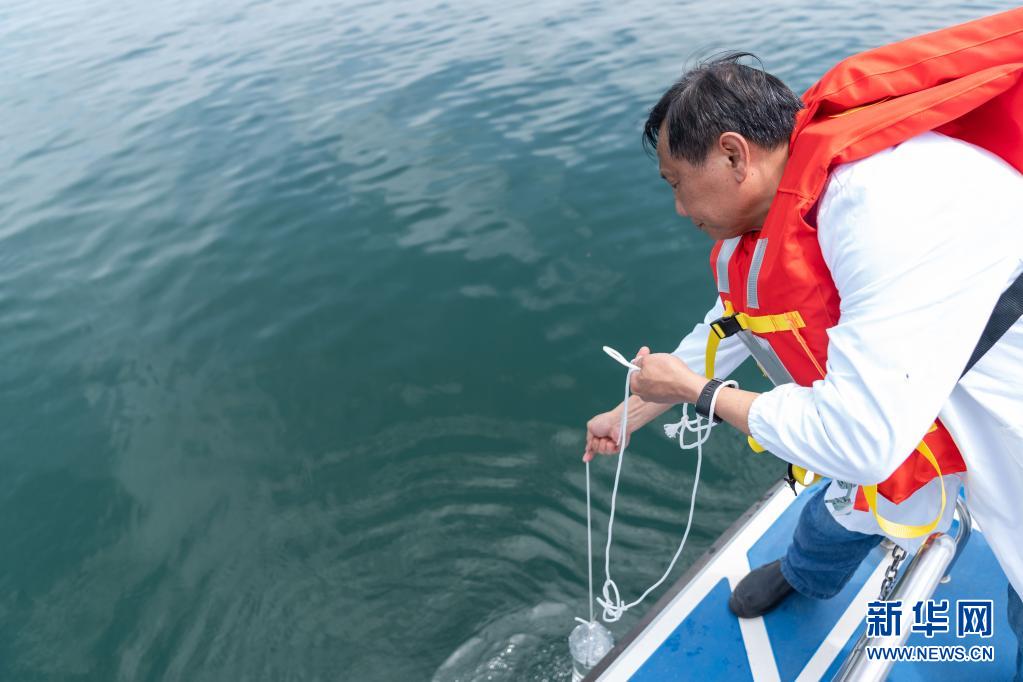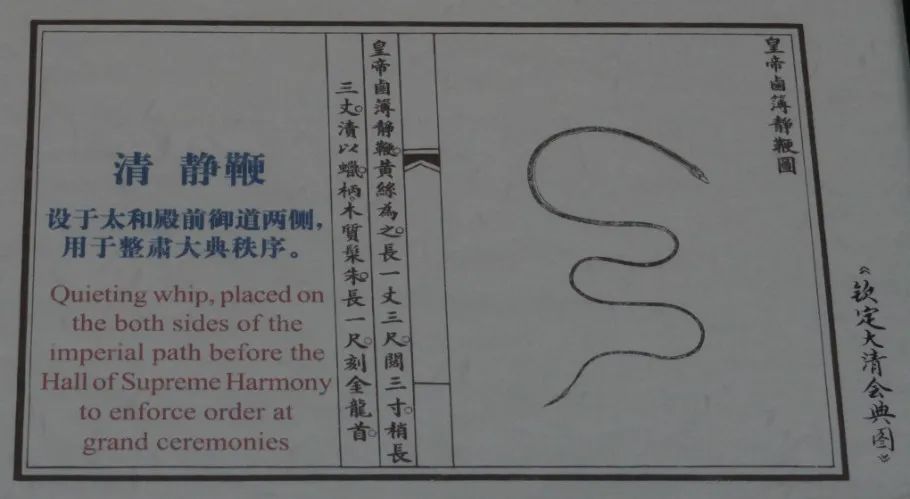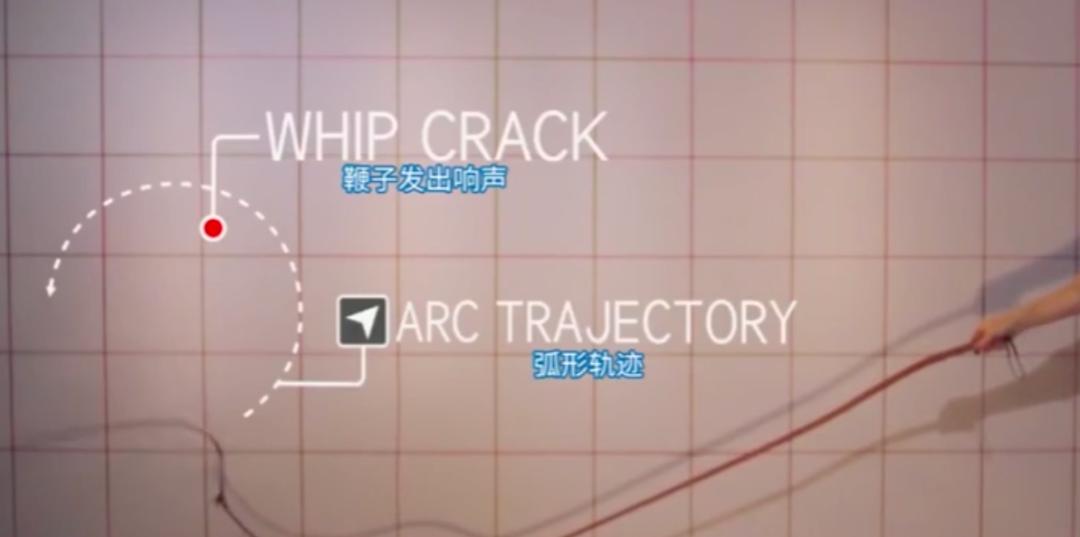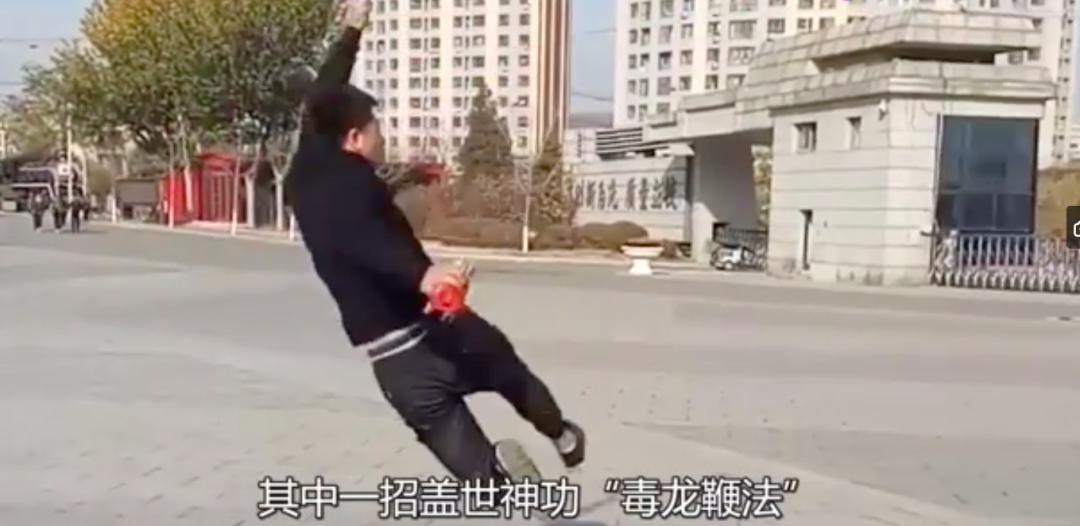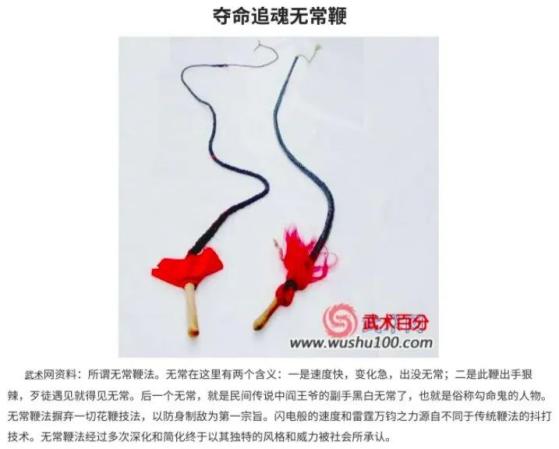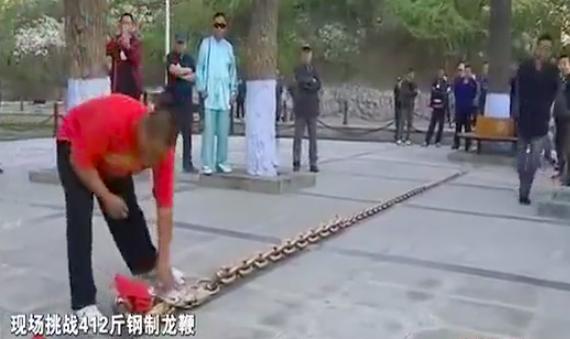(Promulgated by Decree No.15 of the President of the People’s Republic of China on March 15, 1999 at the second session of the Ninth National People’s Congress and effective as of October 1, 1999)
catalogue
general rules
Chapter I General Provisions
Chapter II Formation of Contracts
Chapter III Validity of Contract
Chapter IV Performance of the Contract
Chapter V Alteration and Assignment of Contract
Chapter VI Termination of Rights and Obligations of a Contract
Chapter VII Liability for Breach of Contract
Chapter VIII Other Provisions
Sub-rule
Chapter IX Sales Contract
Chapter X Contracts for Power Supply, Water, Gas and Heat
Chapter XI Gift Contract
Chapter XII Loan Contract
Chapter XIII Lease Contract
Chapter XIV Financing Lease Contract
Chapter XV Contract of Contract
Chapter XVI Construction Project Contract
Chapter XVII Contract of Carriage
Chapter XVIII Technology Contract
Chapter XIX Custody Contract
Chapter 20 Warehousing Contract
Chapter XXI Entrustment Contract
Chapter XXII Contract for Discipline Inspection
Chapter 23 Intermediary Contract
supplementary provisions
general rules
Chapter I General Provisions
Article 1 This Law is formulated for the purpose of protecting the legitimate rights and interests of the parties to a contract, maintaining social and economic order and promoting socialist modernization.
Article 2 A contract as mentioned in this Law is an agreement between natural persons, legal persons and other organizations with equal subjects to establish, change and terminate the relationship of civil rights and obligations.
Agreements on identity relations such as marriage, adoption and guardianship shall be governed by other laws.
Article 3 The parties to a contract have equal legal status, and one party may not impose its will on the other.
Article 4 The parties have the right to conclude a contract voluntarily according to law, and no unit or individual may illegally interfere.
Article 5 The parties shall follow the principle of fairness to determine the rights and obligations of all parties.
Article 6 The parties shall follow the principle of good faith in exercising their rights and performing their obligations.
Article 7 When concluding and performing a contract, the parties shall abide by laws and administrative regulations, respect social ethics, and shall not disturb the social and economic order or harm the public interests.
Article 8 A legally established contract is legally binding on the parties. The parties shall perform their obligations as agreed, and shall not alter or terminate the contract without authorization.
Contracts established according to law are protected by law.
Chapter II Formation of Contracts
Article 9 When concluding a contract, the parties shall have corresponding capacity for civil rights and capacity for civil conduct.
The parties may entrust an agent to conclude a contract according to law.
Article 10 A contract may be concluded by the parties in written form, oral form and other forms.
Where laws and administrative regulations stipulate that it shall be in writing, it shall be in writing. If the parties agree to use written form, it shall be in written form.
Article 11 Written forms refer to forms such as contracts, letters and data messages (including telegrams, telexes, faxes, electronic data interchange and e-mails) that can tangibly express the contents contained.
Article 12 The contents of a contract shall be agreed upon by the parties, and generally include the following clauses:
(a) the name or name and domicile of the parties;
(2) the subject matter;
(3) quantity;
(4) quality;
(5) Price or remuneration;
(6) Time limit, place and method of performance;
(7) Liability for breach of contract;
(8) Methods for resolving disputes.
The parties may conclude a contract by referring to the model texts of various contracts.
Article 13 When concluding a contract, the parties shall adopt the form of offer and acceptance.
Article 14 An offer is an expression of intention to conclude a contract with others, which shall meet the following requirements:
(a) specific content;
(2) The offeror is bound by the expression of will by indicating that he has accepted the offer.
Article 15 An invitation to offer is an expression of intention to expect others to make an offer to themselves. The sent price list, auction announcement, tender announcement, prospectus, commercial advertisement, etc. are invitations to offer.
If the content of a commercial advertisement conforms to the provisions of the offer, it shall be regarded as an offer.
Article 16 An offer takes effect when it reaches the offeree.
When a contract is concluded in the form of a data message, if the addressee designates a specific system to receive the data message, the time when the data message enters the specific system shall be deemed as the time of arrival; If no specific system is specified, the first time that the data message enters any system of the addressee shall be deemed as the time of arrival.
Article 17 An offer may be withdrawn. The notice of withdrawal of an offer shall reach the offeree before or at the same time as the offer.
Article 18 An offer may be revoked. The notice of revocation of an offer shall reach the offeree before the offeree issues the notice of acceptance.
Article 19 An offer shall not be revoked under any of the following circumstances:
(1) The offeror has fixed the time limit for acceptance or made it clear in other forms that the offer is irrevocable;
(2) The offeree has reason to believe that the offer is irrevocable and has made preparations for the performance of the contract.
Article 20 An offer shall be invalid under any of the following circumstances:
(1) The notice of rejection of the offer reaches the offeror;
(2) The offeror revokes the offer according to law;
(3) When the acceptance period expires, the offeree fails to make an acceptance;
(4) The offeree makes substantial changes to the contents of the offer.
Article 21 Acceptance is an expression of the intention of the offeree to agree to an offer.
Article 22 An acceptance shall be made by notice, unless it is indicated by the trading habits or the offer that the acceptance can be made through behavior.
Article 23 An acceptance shall reach the offeror within the time limit specified in the offer.
If the offer does not specify the time limit for acceptance, the acceptance shall arrive in accordance with the following provisions:
(1) If an offer is made through dialogue, an acceptance shall be made immediately, unless otherwise agreed by the parties;
(2) If the offer is made by non-dialogue, the acceptance shall arrive within a reasonable time.
Article 24 If an offer is made by letter or telegram, the acceptance period shall be counted from the date specified in the letter or the date when the telegram is delivered. If the letter is not dated, it shall be counted from the postmark date of posting the letter. If the offer is made by means of rapid communication such as telephone or fax, the acceptance period shall be counted from the time when the offer reaches the offeree.
Article 25 A contract is formed when an acceptance takes effect.
Article 26 A notice of acceptance shall take effect when it reaches the offeror. If the acceptance does not need to be notified, it will take effect when the acceptance is made according to the trading habits or the requirements of the offer.
Where a contract is concluded in the form of data messages, the time of acceptance shall be governed by the provisions of the second paragraph of Article 16 of this Law.
Article 27 An acceptance may be withdrawn. The notice of withdrawal of acceptance shall reach the offeror before or at the same time as the acceptance notice.
Article 28 If the offeree issues an acceptance beyond the time limit for acceptance, it is a new offer unless the offeror promptly informs the offeree that the acceptance is valid.
Article 29 If the offeree makes an acceptance within the acceptance period and can reach the offeror in time according to the usual circumstances, but the acceptance reaches the offeror beyond the acceptance period for other reasons, the acceptance is valid unless the offeror promptly informs the offeree that the acceptance is beyond the acceptance period.
Article 30 The content of acceptance shall be consistent with the content of offer. If the offeree makes substantial changes to the contents of the offer, it is a new offer. Changes in the subject matter of the contract, quantity, quality, price or remuneration, time limit, place and method of performance, liability for breach of contract and dispute settlement methods are substantial changes to the contents of the offer.
Article 31 A promise to make an immaterial change in the contents of an offer is valid, unless the offeror promptly objects to it or the offer indicates that the promise cannot make any change in the contents of the offer. The contents of the contract shall be subject to the contents of the promise.
Article 32 Where a contract is concluded by the parties in the form of a contract, the contract is formed when both parties sign or seal it.
Article 33 If the parties conclude a contract by letter or data message, they may request to sign a confirmation letter before the contract is established. The contract was established when the confirmation letter was signed.
Article 34 The place where the acceptance takes effect is the place where the contract is established.
Where a contract is concluded in the form of a data message, the recipient’s principal place of business is the place where the contract is established; If there is no main place of business, its habitual residence is the place where the contract is established. Unless otherwise agreed by the parties, such agreement shall prevail.
Article 35 Where the parties conclude a contract in the form of a contract, the place where both parties sign or seal is the place where the contract is established.
Article 36 If a contract is concluded in writing as stipulated by laws and administrative regulations or agreed by the parties, but one party has fulfilled its main obligations and the other party accepts it, the contract is established.
Article 37 If a contract is concluded in the form of a contract, before it is signed or sealed, one party has fulfilled its main obligations and the other party accepts it, the contract is established.
Article 38 Where the state issues mandatory tasks or state ordering tasks according to needs, the relevant legal persons and other organizations shall conclude contracts in accordance with the rights and obligations stipulated in relevant laws and administrative regulations.
Article 39 Where a contract is concluded by standard terms, the party providing the standard terms shall follow the principle of fairness to determine the rights and obligations between the parties, and take reasonable measures to draw the attention of the other party to the terms exempting or limiting its liability, and explain the terms according to the requirements of the other party.
Standard clauses are clauses drawn up by the parties in advance for reuse, and they were not consulted with each other when concluding the contract.
Article 40 A standard clause shall be null and void if it falls under the circumstances stipulated in Articles 52 and 53 of this Law, or if the party providing the standard clause exempts its liability, aggravates the other party’s liability or excludes the other party’s main rights.
Article 41 In case of any dispute over the understanding of standard terms, it shall be interpreted according to the usual understanding. If there are more than two interpretations of the standard terms, an interpretation that is unfavorable to the party providing the standard terms shall be made. If the standard terms and non-standard terms are inconsistent, the non-standard terms shall be adopted.
Article 42 In the course of concluding a contract, if one of the following circumstances causes losses to the other party, the parties shall be liable for damages:
(a) under the guise of concluding a contract, malicious consultation;
(2) Deliberately concealing important facts related to the conclusion of a contract or providing false information;
(three) there are other acts that violate the principle of good faith.
Article 43 The business secrets that the parties know in the process of concluding a contract shall not be disclosed or used improperly, regardless of whether the contract is established or not. If the disclosure or improper use of the business secret causes losses to the other party, it shall be liable for damages.
Chapter III Validity of Contract
Article 44 A legally established contract shall come into force upon its establishment.
Where the laws and administrative regulations stipulate that approval, registration and other procedures shall take effect, such provisions shall prevail.
Article 45 The parties may agree to attach conditions to the validity of a contract. A contract with effective conditions shall take effect when the conditions are met. A contract with termination conditions shall be invalid when the conditions are fulfilled.
If a party improperly prevents the condition from being achieved for his own benefit, it shall be deemed that the condition has been achieved; Those who improperly contribute to conditional achievement shall be regarded as conditional failure.
Article 46 The parties may stipulate a time limit for the validity of a contract. A contract with an effective term shall come into effect from the time when the term expires. A contract with a termination period shall be invalid upon the expiration of the period.
Article 47 A contract concluded by a person with limited capacity for civil conduct shall be valid after ratification by the legal representative, but a contract that is purely beneficial or a contract that is suitable for his age, intelligence and mental health need not be ratified by the legal representative.
The counterpart may urge the legal representative to ratify it within one month. If the legal representative fails to give an indication, it shall be deemed as refusal to ratify. Before the contract is ratified, the bona fide counterpart has the right to cancel it. The revocation shall be made by notice.
Article 48 A contract concluded in the principal’s name after the actor has no agency right, exceeds the agency right or the agency right is terminated, without ratification by the principal, it will not be effective for the principal, and the actor shall bear the responsibility.
The counterpart may urge the principal to ratify it within one month. If the principal fails to make a statement, it shall be deemed as refusal to ratify. Before the contract is ratified, the bona fide counterpart has the right to cancel it. The revocation shall be made by notice.
Article 49 If the actor has no power of agency, exceeds the power of agency or concludes a contract in the name of the principal after the termination of the power of agency, and the counterpart has reason to believe that the actor has power of agency, the agency act is valid.
Article 50 A contract concluded by the legal representative or person in charge of a legal person or other organization beyond its authority is valid unless the other party knows or should know that it is beyond its authority.
Article 51 If a person without the right to dispose of another person’s property is ratified by the obligee or the person without the right to dispose obtains the right to dispose after concluding a contract, the contract is valid.
Article 52 A contract is invalid under any of the following circumstances:
(1) One party enters into a contract by means of fraud or coercion, which harms the national interests;
(two) malicious collusion, damage the interests of the state, the collective or the third party;
(3) Covering up illegal purposes in a legal form;
(four) damage the public interest;
(5) Violating the mandatory provisions of laws and administrative regulations.
Article 53 The following exemption clauses in the contract are invalid:
(1) Causing personal injury to the other party;
(2) Causing property losses to the other party due to intentional or gross negligence.
Article 54 One party has the right to request a people’s court or an arbitration institution to modify or cancel the following contracts:
(a) due to major misunderstanding;
(2) obviously unfair at the time of conclusion of the contract.
If one party leads the other party to conclude a contract against its true meaning by fraud, coercion or taking advantage of others’ danger, the injured party has the right to request the people’s court or arbitration institution to modify or cancel it.
The people’s court or the arbitration institution shall not revoke the request of the parties.
Article 55 In any of the following circumstances, the right of revocation shall be extinguished:
(a) the party with the right to cancel fails to exercise the right of cancellation within one year from the date when it knows or should know the reasons for cancellation;
(two) the party with the right to cancel clearly expresses or waives the right of cancellation by his own behavior after knowing the reasons for cancellation.
Article 56 An invalid contract or a cancelled contract is not legally binding from the beginning. If part of the contract is invalid and does not affect the validity of other parts, the other parts are still valid.
Article 57 If a contract is invalid, cancelled or terminated, it shall not affect the validity of the independent clauses on dispute settlement in the contract.
Article 58 After a contract is invalid or cancelled, the property acquired as a result of the contract shall be returned; If it is impossible or unnecessary to return it, it shall be compensated at a discount. The party at fault shall compensate the other party for the losses thus suffered. If both parties are at fault, they shall bear their respective responsibilities.
Article 59 If the parties collude maliciously and harm the interests of the state, the collective or a third party, the property thus obtained shall be turned over to the state or returned to the collective or the third party.
Chapter IV Performance of the Contract
Article 60 The parties shall fully perform their obligations as agreed.
The parties shall abide by the principle of good faith and fulfill the obligations of notification, assistance and confidentiality according to the nature, purpose and trading habits of the contract.
Article 61 After the contract comes into effect, if the parties have not agreed or clearly agreed on the quality, price or remuneration, place of performance, etc., they may supplement it by agreement; If a supplementary agreement cannot be reached, it shall be determined in accordance with the relevant provisions of the contract or trading habits.
Article 62 Where the contents of the relevant contract are not clearly agreed by the parties and cannot be determined according to the provisions of Article 61 of this Law, the following provisions shall apply:
(a) the quality requirements are not clear, in accordance with national standards and industry standards; If there is no national standard or industry standard, it shall be performed according to the usual standard or the specific standard that meets the purpose of the contract.
(2) If the price or remuneration is unclear, it shall be performed according to the market price at the place of performance when the contract is concluded; If government pricing or government-guided pricing should be implemented according to law, it shall be implemented in accordance with the provisions.
(3) Where the place of performance is not clear, if the payment is made in money, it shall be performed at the place where the party receiving the money is located; Where real estate is delivered, it shall be performed at the place where the real estate is located; Other targets shall be performed at the place where the party performing the obligation is located.
(4) If the time limit for performance is unclear, the debtor may perform it at any time, and the creditor may also request performance at any time, but the other party shall be given necessary preparation time.
(5) If the method of performance is not clear, it shall be performed in a way conducive to the realization of the purpose of the contract.
(6) If the burden of performance expenses is unclear, it shall be borne by the party performing the obligation.
Article 63 Where government pricing or government-guided pricing is implemented, when the government price is adjusted within the delivery period agreed in the contract, it shall be priced according to the price at the time of delivery. In case of overdue delivery of the subject matter, when the price rises, the original price shall prevail; When the price drops, the new price shall prevail. Overdue extraction of the subject matter or overdue payment, in case of price increase, according to the new price; When the price drops, the original price shall prevail.
Article 64 Where the parties agreed that the debtor should perform the debt to the third party, if the debtor fails to perform the debt to the third party or the performance is not in conformity with the agreement, it shall be liable to the creditor for breach of contract.
Article 65 If the parties agree that a third person shall perform the debt to the creditor, and the third person fails to perform the debt or the performance does not conform to the agreement, the debtor shall be liable to the creditor for breach of contract.
Article 66 If the parties owe debts to each other and there is no order of performance, they shall perform at the same time. One party has the right to refuse the performance requirements of the other party before the performance. One party has the right to refuse the corresponding performance requirements of the other party when the performance of the debt is not in conformity with the contract.
Article 67 Where the parties owe debts to each other, they shall perform in sequence. If one party fails to perform first, the other party has the right to refuse its performance requirements. If the first performing party fails to meet the contract, the second performing party has the right to refuse its corresponding performance requirements.
Article 68 If the party who should perform the debt first has definite evidence to prove that the other party has one of the following circumstances, it may suspend the performance:
(a) the business situation has deteriorated seriously;
(2) Transferring property or withdrawing funds to avoid debts;
(3) Loss of business reputation;
(four) there are other circumstances that have lost or may lose the ability to perform debts.
If a party suspends performance without definite evidence, it shall be liable for breach of contract.
Article 69 If a party suspends performance in accordance with the provisions of Article 68 of this Law, it shall promptly notify the other party. When the other party provides appropriate guarantee, it shall resume performance. After the suspension of performance, if the other party fails to recover its performance ability within a reasonable period of time and fails to provide appropriate guarantee, the party that suspends performance may terminate the contract.
Article 70 If the creditor fails to notify the debtor of the division, merger or change of domicile, thus making it difficult to perform the debt, the debtor may suspend the performance or deposit the subject matter.
Article 71 A creditor may refuse the debtor’s early performance of the debt, unless the early performance does not harm the creditor’s interests.
The expenses incurred by the creditor due to the debtor’s early performance of the debt shall be borne by the debtor.
Article 72 A creditor may refuse the debtor’s partial performance, unless the partial performance does not harm the creditor’s interests.
The expenses incurred by the creditor due to the partial performance of the debt by the debtor shall be borne by the debtor.
Article 73 Where the debtor’s delay in exercising its due creditor’s rights causes damage to the creditor, the creditor may request the people’s court to subrogate the debtor’s creditor’s rights in its own name, unless the creditor’s rights belong exclusively to the debtor.
The scope of subrogation is limited to the creditor’s rights. The necessary expenses for the creditor to exercise subrogation shall be borne by the debtor.
Article 74 If the debtor abandons its due creditor’s rights or transfers its property for free, thus causing damage to the creditor, the creditor may request the people’s court to cancel the debtor’s behavior. If the debtor transfers the property at an obviously unreasonable low price, causing damage to the creditor, and the assignee knows the situation, the creditor may also request the people’s court to cancel the debtor’s behavior.
The scope of revocation right is limited to the creditor’s rights. The necessary expenses for the creditor to exercise its right of cancellation shall be borne by the debtor.
Article 75 The right of revocation shall be exercised within one year from the date when the creditor knows or should know the reasons for revocation. If the debtor fails to exercise its cancellation right within five years from the date of the debtor’s act, the cancellation right shall be extinguished.
Article 76 After a contract comes into effect, the parties may not fail to perform their contractual obligations due to the change of their names or legal representatives, responsible persons and contractors.
Chapter V Alteration and Assignment of Contract
Article 77 The parties may modify the contract through consultation.
Where laws and administrative regulations stipulate that the modification of a contract shall go through the formalities of approval and registration, such provisions shall prevail.
Article 78 Where the parties have not clearly agreed on the contents of the contract change, it is presumed that it has not been changed.
Article 79 The obligee may assign all or part of its contractual rights to a third party, except in any of the following circumstances:
(a) according to the nature of the contract shall not be transferred;
(2) Not transferable according to the agreement of the parties;
(3) It may not be transferred according to the law.
Article 80 Where a creditor transfers its rights, it shall notify the debtor. Without notice, the assignment is not effective for the debtor.
The notice of the creditor’s transfer of rights shall not be revoked, except with the consent of the transferee.
Article 81 Where the obligee transfers its rights, the assignee obtains the subordinate rights related to the obligee’s rights, unless the subordinate rights belong exclusively to the obligee.
Article 82 After receiving the notice of assignment of creditor’s rights, the debtor may claim the defense of the transferor from the transferee.
Article 83 When the debtor receives the notice of assignment of creditor’s rights, if the debtor enjoys the creditor’s rights against the assignor, and the debtor’s creditor’s rights expire before or at the same time as the assigned creditor’s rights, the debtor may claim set-off from the assignee.
Article 84 Where the debtor transfers all or part of its contractual obligations to a third party, it shall obtain the consent of the creditor.
Article 85 If the debtor transfers its obligations, the new debtor may claim the original debtor’s defense against the creditor.
Article 86 Where the obligor transfers its obligations, the new obligor shall bear the subordinate debts related to the principal debts, unless the subordinate debts belong exclusively to the original obligor.
Article 87 Where laws and administrative regulations stipulate that the transfer of rights or obligations shall go through the formalities of approval and registration, such provisions shall prevail.
Article 88 A party may, with the consent of the other party, transfer its rights and obligations in a contract to a third party.
Article 89 Where rights and obligations are transferred at the same time, the provisions of Articles 79, 81 to 83, 85 to 87 of this Law shall apply.
Article 90 If the parties merge after concluding a contract, the merged legal person or other organization shall exercise its contractual rights and perform its contractual obligations. If the parties are separated after concluding a contract, unless otherwise agreed by the creditors and debtors, the separated legal person or other organization shall enjoy joint and several creditor’s rights and obligations under the contract and bear joint and several debts.
Chapter VI Termination of Rights and Obligations of a Contract
Article 91 The rights and obligations under a contract shall be terminated under any of the following circumstances:
(a) the debt has been performed in accordance with the contract;
(2) Termination of the contract;
(3) Debts offset each other;
(4) The debtor deposits the subject matter in accordance with the law;
(5) Creditors are exempted from debts;
(6) Creditor’s rights and debts belong to one person;
(seven) other circumstances stipulated by law or agreed by the parties to terminate.
Article 92 After the rights and obligations of a contract are terminated, the parties shall abide by the principle of good faith and perform the obligations of notification, assistance and confidentiality according to the trading habits.
Article 93 A contract may be terminated if the parties reach an agreement through consultation.
The parties may stipulate the conditions for one party to terminate the contract. When the conditions for terminating the contract are met, the obligee may terminate the contract.
Article 94 Under any of the following circumstances, the parties may terminate the contract:
(a) the purpose of the contract cannot be achieved due to force majeure;
(two) before the expiration of the time limit for performance, one party clearly stated or indicated by its own behavior that it would not perform its main debts;
(three) one party delays the performance of the main debt and fails to perform it within a reasonable period after being urged;
(four) one of the parties delayed the performance of the debt or other breach of contract, which made it impossible to achieve the purpose of the contract;
(5) Other circumstances stipulated by law.
Article 95 The time limit for exercising the right of rescission is stipulated by law or agreed by the parties. If the parties fail to exercise the right at the expiration of the time limit, the right shall be extinguished.
If the law does not stipulate or the parties have not agreed on the time limit for exercising the right of rescission, and they fail to exercise it within a reasonable time after being urged by the other party, the right shall be extinguished.
Article 96 If one party claims to terminate the contract in accordance with the provisions of paragraph 2 of Article 93 and Article 94 of this Law, it shall notify the other party. The contract is terminated when the notice reaches the other party. If the other party disagrees, it may request a people’s court or an arbitration institution to confirm the validity of the termination of the contract.
Where the laws and administrative regulations stipulate that the termination of the contract shall go through the formalities of approval and registration, such provisions shall prevail.
Article 97 If the contract has not been performed after dissolution, the performance shall be terminated; If it has been performed, according to the performance and the nature of the contract, the parties may demand restitution and take other remedial measures, and have the right to demand compensation for losses.
Article 98 The termination of the rights and obligations of a contract shall not affect the validity of the settlement and liquidation clauses in the contract.
Article 99 Where the parties owe each other debts due, and the subject matter of the debts is of the same type and quality, either party may set off its debts against the debts of the other party, except that it is not allowed to set off according to the law or the nature of the contract.
If a party claims set-off, it shall notify the other party. The notice takes effect when it reaches the other party. No conditions or time limit may be attached to the set-off.
Article 100 Where the parties owe debts to each other, and the types and qualities of the subject matter are different, they may also set them off upon mutual agreement.
Article 101 Where it is difficult to perform the debt under any of the following circumstances, the debtor may place the subject matter in escrow:
(1) The creditor refuses to accept it without justifiable reasons;
(2) The creditor’s whereabouts are unknown;
(3) The creditor dies without an heir or loses capacity for civil conduct without a guardian;
(4) Other circumstances prescribed by law.
If the subject matter is not suitable for escrow or the escrow fee is too high, the debtor may auction or sell the subject matter according to law and escrow the proceeds.
Article 102 After the subject matter is deposited, the debtor shall promptly notify the creditor or the creditor’s successor or guardian, unless the creditor’s whereabouts are unknown.
Article 103 After the subject matter is deposited, the risk of damage or loss shall be borne by the creditor. During the period of escrow, the fruits of the subject matter belong to the creditors. The deposit fee shall be borne by the creditor.
Article 104 The obligee may claim the deposit at any time, but if the obligee has a debt due to the obligor, the deposit department shall refuse to claim the deposit at the request of the obligor before the obligee fails to perform the debt or provide a guarantee.
The creditor’s right to receive the deposit shall be extinguished if it is not exercised within five years from the date of deposit, and the deposit shall be owned by the state after deducting the deposit fee.
Article 105 Where the obligee discharges part or all of the debtor’s debts, the rights and obligations under the contract are partially or completely terminated.
Article 106 Where the creditor’s rights and debts belong to the same person, the rights and obligations under the contract shall terminate, except those involving the interests of a third party.
Chapter VII Liability for Breach of Contract
Article 107 If a party fails to perform its contractual obligations or fails to perform the contractual obligations in conformity with the contract, it shall be liable for breach of contract such as continuing to perform, taking remedial measures or compensating for losses.
Article 108 If a party expressly expresses or shows by his own behavior that he will not perform his contractual obligations, the other party may require him to bear the liability for breach of contract before the time limit for performance expires.
Article 109 If one party fails to pay the price or remuneration, the other party may require it to pay the price or remuneration.
Article 110 If one party fails to perform the non-monetary debt or the performance of the non-monetary debt does not conform to the agreement, the other party may demand performance, except in any of the following circumstances:
(a) unable to perform in law or in fact;
(two) the subject matter of the debt is not suitable for compulsory performance or the performance cost is too high;
(3) The creditor fails to demand performance within a reasonable time limit.
Article 111 Where the quality does not conform to the contract, it shall be liable for breach of contract in accordance with the agreement of the parties. If the liability for breach of contract is not stipulated or clearly stipulated and cannot be determined according to the provisions of Article 61 of this Law, the injured party may reasonably choose to ask the other party to bear the liability for breach of contract such as repair, replacement, rework, return, reduction of price or remuneration according to the nature of the subject matter and the size of the loss.
Article 112 If one party fails to perform its contractual obligations or the performance of the contractual obligations is not in conformity with the contract, if the other party has other losses after performing its obligations or taking remedial measures, it shall compensate for the losses.
Article 113 Where a party fails to perform its contractual obligations or fails to perform its contractual obligations in conformity with the contract, thus causing losses to the other party, the amount of compensation for the losses shall be equivalent to the losses caused by the breach of contract, including the benefits that can be obtained after the performance of the contract, but shall not exceed the losses that the breaching party foresaw or should have foreseen when concluding the contract.
Operators who commit fraud in providing goods or services to consumers shall be liable for damages in accordance with the provisions of the Law of People’s Republic of China (PRC) on the Protection of Consumers’ Rights and Interests.
Article 114 The parties may agree that one party shall pay a certain amount of liquidated damages to the other party in case of breach of contract, or may agree on the calculation method of the amount of compensation for losses caused by breach of contract.
If the agreed liquidated damages are lower than the losses caused, the parties may request the people’s court or arbitration institution to increase them; If the agreed liquidated damages are excessively higher than the losses caused, the parties may request the people’s court or arbitration institution to reduce them appropriately.
If the parties concerned pay liquidated damages for the delay in performance, the breaching party shall also perform the debt after paying the liquidated damages.
Article 115 The parties may, in accordance with the Guarantee Law of People’s Republic of China (PRC), stipulate that one party shall pay a deposit to the other party as security for the creditor’s rights. After the debtor performs the debt, the deposit shall be used as the price or recovered. If the party paying the deposit fails to perform the agreed debt, it has no right to demand the return of the deposit; If the party receiving the deposit fails to perform the agreed debt, it shall return the deposit twice.
Article 116 Where the parties have agreed on both liquidated damages and deposit, when one party breaches the contract, the other party may choose to apply the terms of liquidated damages or deposit.
Article 117 Where a contract cannot be performed due to force majeure, it shall be exempted from liability in part or in whole according to the influence of force majeure, except as otherwise provided by law. If force majeure occurs after the delay in performance, the parties cannot be exempted from liability.
Force majeure as mentioned in this Law refers to unforeseeable, unavoidable and insurmountable objective circumstances.
Article 118 If one party is unable to perform the contract due to force majeure, it shall notify the other party in time to reduce the possible losses to the other party, and shall provide proof within a reasonable time.
Article 119 After one party breaches the contract, the other party shall take appropriate measures to prevent the loss from expanding; If no appropriate measures are taken to cause the losses to expand, no compensation may be claimed for the expanded losses.
The reasonable expenses incurred by the parties to prevent the loss from expanding shall be borne by the breaching party.
Article 120 Where both parties breach a contract, they shall bear their respective responsibilities.
Article 121 If a party breaches the contract due to the reason of a third party, it shall be liable to the other party for breach of contract. Disputes between a party and a third party shall be settled in accordance with the law or in accordance with the agreement.
Article 122 If one party’s breach of contract infringes upon the other party’s personal and property rights and interests, the injured party has the right to demand that it bear the liability for breach of contract in accordance with this Law or demand that it bear the liability for tort in accordance with other laws.
Chapter VIII Other Provisions
Article 123 Where other laws provide otherwise for contracts, such provisions shall prevail.
Article 124 Where there are no express provisions in the specific provisions of this Law or other laws, the provisions in the general provisions of this Law shall apply, and reference may be made to the most similar provisions in the specific provisions of this Law or other laws.
Article 125 If there is any dispute about the understanding of the terms of a contract, the parties shall determine the true meaning of the terms according to the words used in the contract, the relevant terms of the contract, the purpose of the contract, the trading habits and the principle of good faith.
Where a contract text is concluded in two or more languages and the agreement is equally authentic, the words and expressions used in each text are presumed to have the same meaning. Where the words and expressions used in each text are inconsistent, they shall be interpreted according to the purpose of the contract.
Article 126 The parties to a foreign-related contract may choose the applicable law for handling contract disputes, except as otherwise provided by law. If the parties to a foreign-related contract have no choice, the laws of the country most closely related to the contract shall apply.
Chinese-foreign equity joint venture contracts, Chinese-foreign contractual joint venture contracts and Chinese-foreign cooperative exploration and development contracts in People’s Republic of China (PRC) shall be governed by the laws of People’s Republic of China (PRC).
Article 127 The administrative department for industry and commerce and other relevant administrative departments shall, within their respective functions and powers and in accordance with the provisions of laws and administrative regulations, be responsible for supervising and handling illegal acts that endanger the national interests and social public interests by using contracts; If a crime is constituted, criminal responsibility shall be investigated according to law.
Article 128 The parties may settle a contract dispute through conciliation or mediation.
If the parties are unwilling to settle or mediate, or the settlement or mediation fails, they may apply to an arbitration institution for arbitration according to the arbitration agreement. The parties to a foreign-related contract may apply for arbitration to an arbitration institution in China or other arbitration institutions according to the arbitration agreement. If the parties have not concluded an arbitration agreement or the arbitration agreement is invalid, they may bring a suit in a people’s court. The parties shall perform legally effective judgments, arbitral awards and conciliation statements; Refuses to perform, the other party may request the people’s court for execution.
Article 129 The time limit for bringing a lawsuit or applying for arbitration for disputes arising from international contracts for the sale of goods and technology import and export contracts is four years, counting from the day when the parties know or should know that their rights have been infringed. The time limit for bringing a lawsuit or applying for arbitration for other contract disputes shall be in accordance with the provisions of relevant laws.
Sub-rule
Chapter IX Sales Contract
Article 130 A sales contract is a contract in which the seller transfers the ownership of the subject matter to the buyer and the buyer pays the price.
Article 131 In addition to the provisions of Article 12 of this Law, the contents of a sales contract may also include terms such as packing method, inspection standards and methods, settlement method, language used in the contract and its validity.
Article 132 The subject matter to be sold shall belong to the seller or the seller shall have the right to dispose of it.
Laws and administrative regulations prohibit or restrict the transfer of the subject matter, in accordance with its provisions.
Article 133 The ownership of the subject matter shall be transferred from the delivery of the subject matter, except as otherwise provided by law or agreed by the parties.
Article 134 The parties may stipulate in the sales contract that if the buyer fails to pay the price or other obligations, the ownership of the subject matter belongs to the seller.
Article 135 The seller shall perform the obligation to deliver the subject matter to the buyer or deliver the documents for taking delivery of the subject matter, and transfer the ownership of the subject matter.
Article 136 The seller shall deliver to the buyer the relevant documents and materials other than the documents for taking delivery of the subject matter in accordance with the agreement or trading habits.
Article 137 Where a subject matter such as computer software with intellectual property rights is sold, the intellectual property rights of the subject matter do not belong to the buyer unless otherwise stipulated by law or agreed by the parties.
Article 138 The seller shall deliver the subject matter within the agreed time limit. If the delivery period is agreed, the seller may deliver the goods at any time within the delivery period.
Article 139 Where the parties have not agreed on the time limit for delivery of the subject matter or the agreement is unclear, the provisions of Item 4 of Article 61 and Article 62 of this Law shall apply.
Article 140 Where the subject matter has been possessed by the buyer before the conclusion of the contract, the time when the contract takes effect is the time of delivery.
Article 141 The seller shall deliver the subject matter at the agreed place.
Where the parties have not agreed on the place of delivery or the agreement is unclear and cannot be determined according to the provisions of Article 61 of this Law, the following provisions shall apply:
(1) If the subject matter needs to be transported, the seller shall deliver the subject matter to the first carrier for delivery to the buyer;
(two) the subject matter does not need to be transported, and the seller and the buyer knew that the subject matter was at a certain place when concluding the contract, the seller should deliver the subject matter at that place; If the subject matter is not known at a certain place, it shall be delivered at the seller’s business place when the contract is concluded.
Article 142 The risk of damage or loss of the subject matter shall be borne by the seller before delivery and by the buyer after delivery, except as otherwise provided by law or agreed by the parties.
Article 143 If the subject matter cannot be delivered within the agreed time limit due to the buyer’s reasons, the buyer shall bear the risk of damage or loss of the subject matter from the date of breach of the agreement.
Article 144 Where the seller sells the subject matter in transit delivered to the carrier, unless otherwise agreed by the parties, the risk of damage or loss shall be borne by the buyer from the time the contract is established.
Article 145 Where the parties have not agreed on the place of delivery or the agreement is unclear, and the subject matter needs to be transported in accordance with the provisions of Item 1 of Paragraph 2 of Article 141 of this Law, after the seller delivers the subject matter to the first carrier, the risk of damage or loss of the subject matter shall be borne by the buyer.
Article 146 Where the seller places the subject matter at the place of delivery in accordance with the agreement or in accordance with the provisions of Item 2 of Paragraph 2 of Article 141 of this Law, and the buyer fails to collect it in violation of the agreement, the risk of damage or loss of the subject matter shall be borne by the buyer from the date of violation of the agreement.
Article 147 The seller’s failure to deliver the documents and materials related to the subject matter as agreed shall not affect the transfer of the risk of damage or loss of the subject matter.
Article 148 If the quality of the subject matter does not meet the quality requirements, thus the purpose of the contract cannot be achieved, the buyer may refuse to accept the subject matter or terminate the contract. If the buyer refuses to accept the subject matter or terminates the contract, the risk of damage or loss of the subject matter shall be borne by the seller.
Article 149 If the risk of damage or loss of the subject matter is borne by the buyer, it shall not affect the buyer’s right to demand the seller to bear the liability for breach of contract because the performance of the debt is not in conformity with the agreement.
Article 150 The seller has the obligation to ensure that a third party may not claim any rights against the buyer with respect to the delivered subject matter, except as otherwise provided by law.
Article 151 If the buyer knew or should have known at the time of concluding the contract that the third party had the right to the subject matter of the sale, the seller shall not bear the obligations stipulated in Article 150 of this Law.
Article 152 Where the buyer has conclusive evidence to prove that a third party may claim rights on the subject matter, it may suspend the payment of the corresponding price, unless the seller provides appropriate guarantee.
Article 153 The seller shall deliver the subject matter in accordance with the agreed quality requirements. If the seller provides a description of the quality of the subject matter, the delivered subject matter shall meet the quality requirements of the description.
Article 154 Where the quality requirements of the subject matter were not agreed upon or clearly agreed upon by the parties and cannot be determined according to the provisions of Article 61 of this Law, the provisions of Item 1 of Article 62 of this Law shall apply.
Article 155 Where the subject matter delivered by the seller does not meet the quality requirements, the buyer may demand to bear the liability for breach of contract in accordance with the provisions of Article 111 of this Law.
Article 156 The seller shall deliver the subject matter in the agreed packaging method. Where there is no agreement or unclear agreement on the packing method, and it cannot be determined according to the provisions of Article 61 of this Law, it shall be packed in a general way. If there is no general way, it shall be packed in a way that can protect the subject matter.
Article 157 Upon receipt of the subject matter, the buyer shall inspect it within the agreed inspection period. If there is no agreed inspection period, it shall be inspected in time.
Article 158 Where the parties agreed on the inspection period, the buyer shall notify the seller of the non-conformity of the quantity or quality of the subject matter within the inspection period. If the buyer is slow to notify, it shall be deemed that the quantity or quality of the subject matter conforms to the agreement.
If the parties have not agreed on the inspection period, the buyer shall notify the seller within a reasonable period of finding or should find that the quantity or quality of the subject matter is not in conformity with the agreement. If the buyer fails to notify the seller within a reasonable period or within two years from the date of receipt of the subject matter, it shall be deemed that the quantity or quality of the subject matter conforms to the agreement, but if there is a quality guarantee period for the subject matter, the quality guarantee period shall apply, and the provisions of the two years shall not apply.
If the seller knows or should know that the provided subject matter is not in conformity with the agreement, the buyer is not limited by the notice time stipulated in the preceding two paragraphs.
Article 159 The buyer shall pay the price in accordance with the agreed amount. Where the price is not agreed or clearly agreed, the provisions of Article 61 and Item 2 of Article 62 of this Law shall apply.
Article 160 The buyer shall pay the price at the agreed place. Where the place of payment is not prescribed or clearly prescribed, and cannot be determined according to the provisions of Article 61 of this Law, the buyer shall pay at the seller’s place of business. However, if it is stipulated that the payment is conditional on the delivery of the subject matter or the delivery of the documents for taking delivery of the subject matter, the payment shall be made at the place where the subject matter is delivered or delivered.
Article 161 The buyer shall pay the price at the agreed time. If the payment time is not agreed or clearly agreed, and cannot be determined according to the provisions of Article 61 of this Law, the buyer shall pay at the same time as receiving the subject matter or taking out the documents of the subject matter.
Article 162 Where the seller overpays the subject matter, the buyer may accept or refuse to accept the overpaid part. If the buyer receives the overpaid part, it shall pay the price according to the contract price; If the buyer refuses to accept the overpaid part, it shall notify the seller in time.
Article 163 The fruits of the subject matter before delivery shall be owned by the seller, and the fruits after delivery shall be owned by the buyer.
Article 164 Where a contract is terminated because the subject matter of the subject matter is not in conformity with the contract, the effect of termination of the contract extends to the accessory. If the subordinate object of the subject matter is dissolved because it does not conform to the agreement, the effect of dissolution is not as good as that of the main object.
Article 165 Where the subject matter is several things, and one of them is not in conformity with the contract, the buyer may terminate the contract with respect to it, but if the separation of the subject matter from other things significantly damages the value of the subject matter, the parties may terminate the contract with respect to several things.
Article 166 Where the seller delivered the subject matter in batches, if the seller failed to deliver one batch of the subject matter or the delivery did not conform to the contract, so that the purpose of the contract could not be achieved, the buyer may terminate the batch of subject matter.
If the seller fails to deliver one batch of the subject matter or the delivery does not conform to the agreement, so that the delivery of other batches of the subject matter in the future cannot achieve the purpose of the contract, the buyer may terminate the subject matter in this batch and other batches in the future.
If the buyer cancels one batch of the subject matter, which is interdependent with other batches of the subject matter, it may cancel the delivered and undelivered batches of the subject matter.
Article 167 If the buyer who pays the due price by installment accounts for one fifth of the total price, the seller may require the buyer to pay the full price or terminate the contract.
If the seller terminates the contract, he may demand the buyer to pay the use fee of the subject matter.
Article 168 The parties who buy or sell by samples shall seal up the samples and may explain the quality of the samples. The subject matter delivered by the seller shall be of the same quality as the sample and its description.
Article 169 Where the buyer who buys and sells by sample does not know that the sample has hidden defects, even if the delivered subject matter is the same as the sample, the quality of the delivered subject matter by the seller shall still meet the usual standards of the same kind.
Article 170 The parties to a trial sale may stipulate the trial period of the subject matter. If the probation period is not stipulated or clearly stipulated and cannot be determined according to the provisions of Article 61 of this Law, it shall be determined by the seller.
Article 171 A buyer of a trial sale may purchase the subject matter or refuse to buy it during the trial period. At the expiration of the probation period, if the buyer fails to indicate whether to purchase the subject matter, it shall be deemed as a purchase.
Article 172 The rights and obligations of the parties to a bid invitation and bidding transaction and the procedures for bidding and tendering shall be in accordance with the provisions of relevant laws and administrative regulations.
Article 173 The rights and obligations of the parties to an auction and the auction procedures shall be in accordance with the provisions of relevant laws and administrative regulations.
Article 174 Where the law provides for other paid contracts, such provisions shall prevail; If there are no provisions, refer to the relevant provisions of the sales contract.
Article 175 Where the parties agree to barter and transfer the ownership of the subject matter, the relevant provisions of the sales contract shall be referred to.
Chapter X Contracts for Power Supply, Water, Gas and Heat
Article 176 A power supply contract is a contract in which the power supplier supplies power to the power user and the power user pays the electricity fee.
Article 177 The contents of a power supply contract include terms such as mode, quality and time of power supply, capacity, address, nature, measurement method, settlement method of electricity price and electricity fee, and maintenance responsibility of power supply facilities.
Article 178 The place of performance of a power supply contract shall be as agreed by the parties; If the parties have not agreed or the agreement is unclear, the property right boundary of power supply facilities shall be the place of performance.
Article 179 A power supplier shall supply power safely in accordance with the quality standards and agreements stipulated by the state. If the power supplier fails to supply power safely in accordance with the quality standards and agreements stipulated by the state, causing losses to the power user, it shall be liable for damages.
Article 180 When the power supplier needs to interrupt the power supply due to planned maintenance, temporary maintenance, power restriction according to law or illegal use of electricity by the power user, it shall notify the power user in advance in accordance with relevant state regulations. If the power supply is interrupted without prior notice to the user, causing losses to the user, he shall be liable for damages.
Article 181 If power is cut off due to natural disasters and other reasons, the power supplier shall promptly repair it in accordance with relevant state regulations. Those who fail to repair in time and cause losses to the power users shall be liable for damages.
Article 182 A power user shall pay the electricity fee in time in accordance with the relevant provisions of the state and the agreement of the parties. If the electricity user fails to pay the electricity fee within the time limit, he shall pay the liquidated damages in accordance with the agreement. If the electricity user fails to pay the electricity fee and liquidated damages within a reasonable period of time after being urged, the power supplier may suspend power supply in accordance with the procedures prescribed by the state.
Article 183 A power user shall use electricity safely in accordance with the relevant provisions of the state and the agreement of the parties. If the electricity user fails to use electricity safely in accordance with the relevant provisions of the state and the agreement of the parties, causing losses to the power supplier, he shall be liable for damages.
Article 184 Contracts for water supply, gas supply and heat supply shall refer to the relevant provisions of power supply contracts.
Chapter XI Gift Contract
Article 185 A gift contract is a contract in which the donor gives his property to the donee free of charge and the donee expresses his acceptance of the gift.
Article 186 The donor may revoke the gift before the right to donate the property is transferred.
The provisions of the preceding paragraph shall not apply to gift contracts with the nature of social welfare and moral obligation such as disaster relief and poverty alleviation or notarized gift contracts.
Article 187 If the donated property needs to go through registration and other formalities according to law, it shall go through the relevant formalities.
Article 188 If the donor fails to deliver the donated property in a gift contract or a notarized gift contract with the nature of social welfare and moral obligation such as disaster relief and poverty alleviation, the donee may demand delivery.
Article 189 Where the donated property is damaged or lost due to intentional or gross negligence of the donor, the donor shall be liable for damages.
Article 190 A gift may be accompanied by obligations.
If the gift is accompanied by obligations, the donee shall perform the obligations as agreed.
Article 191 Where the donated property is defective, the donor shall not be liable. For a gift with obligations, if the donated property is defective, the donor shall bear the same responsibilities as the seller within the limits of obligations.
If the donor intentionally fails to inform of the defects or guarantees that there are no defects, thus causing losses to the donee, he shall be liable for damages.
Article 192 If the donee is in any of the following circumstances, the donor may revoke the gift:
(a) serious infringement of the donor or the donor’s close relatives;
(two) the donor has the obligation to support and fails to perform;
(3) Failing to perform the obligations stipulated in the gift contract.
The donor’s right of revocation shall be exercised within one year from the date when he knows or should know the reason for revocation.
Article 193 If the donor dies or loses his capacity for civil conduct due to the donee’s illegal act, the donor’s successor or legal representative may revoke the gift.
The right of revocation of the donor’s heir or legal representative shall be exercised within six months from the date when he knows or should know the reason for revocation.
Article 194 Where the revocation right holder revokes the gift, he may request the donee to return the donated property.
Article 195 If the donor’s financial situation has deteriorated significantly, which has seriously affected his production, operation or family life, he may no longer perform his gift obligation.
Chapter XII Loan Contract
Article 196 A loan contract is a contract in which the borrower borrows money from the lender, repays the loan at maturity and pays interest.
Article 197 A loan contract shall be in written form, except as otherwise agreed between natural persons.
The contents of the loan contract include the loan type, currency, purpose, amount, interest rate, term and repayment method.
Article 198 When concluding a loan contract, the lender may require the borrower to provide a guarantee. The guarantee shall be in accordance with the provisions of the Guarantee Law of People’s Republic of China (PRC).
Article 199 When concluding a loan contract, the borrower shall provide the true information about the business activities and financial status related to the loan as required by the lender.
Article 200 Interest on a loan shall not be deducted from the principal in advance. If the interest is deducted from the principal in advance, the loan shall be returned according to the actual loan amount and the interest shall be calculated.
Article 201 Where the lender fails to provide the loan on the agreed date and amount, thereby causing losses to the borrower, it shall compensate for the losses.
If the borrower fails to collect the loan according to the agreed date and amount, it shall pay interest according to the agreed date and amount.
Article 202 The lender may inspect and supervise the use of the loan in accordance with the agreement. The borrower shall provide the lender with relevant financial and accounting statements and other materials on a regular basis in accordance with the agreement.
Article 203 Where the borrower fails to use the loan according to the agreed purpose, the lender may stop issuing the loan, recover the loan in advance or terminate the contract.
Article 204 The loan interest rate of financial institutions handling loan business shall be determined according to the upper and lower limits of the loan interest rate stipulated by the People’s Bank of China.
Article 205 The borrower shall pay interest at the agreed time limit. If there is no agreement or unclear agreement on the time limit for paying interest, and it cannot be determined according to the provisions of Article 61 of this Law, if the loan period is less than one year, it shall be paid together when the loan is returned; If the loan period is more than one year, it shall be paid at the end of each year, and if the remaining period is less than one year, it shall be paid together with the loan.
Article 206 The borrower shall repay the loan within the agreed time limit. If the term of the loan is not agreed or clearly agreed, and cannot be determined according to the provisions of Article 61 of this Law, the borrower may return it at any time; The lender may urge the borrower to return it within a reasonable period of time.
Article 207 If the borrower fails to repay the loan within the agreed time limit, it shall pay the overdue interest in accordance with the agreement or the relevant provisions of the state.
208th: If the borrower repays the loan in advance, unless otherwise agreed by the parties, the interest shall be calculated according to the actual loan period.
Article 209 The borrower may apply to the lender for extension before the repayment period expires. If the lender agrees, it can be extended.
Article 210 A loan contract between natural persons shall take effect when the lender provides the loan.
Article 211 If the loan contract between natural persons does not stipulate or clearly stipulate the payment of interest, it shall be deemed that no interest is paid.
If the loan contract between natural persons stipulates to pay interest, the interest rate of the loan shall not violate the relevant provisions of the state on limiting the interest rate of the loan.
Chapter XIII Lease Contract
Article 212 A lease contract is a contract in which the lessor delivers the lease item to the lessee for use and profit, and the lessee pays the rent.
Article 213 The contents of a lease contract include terms such as the name, quantity, purpose, lease term, rent and its payment term and method, and maintenance of the lease item.
Article 214 The lease term shall not exceed 20 years. More than twenty years, the excess part is invalid.
Upon the expiration of the lease term, the parties may renew the lease contract, but the agreed lease term shall not exceed 20 years from the date of renewal.
Article 215 If the lease term is more than six months, it shall be in written form. If the parties fail to adopt a written form, it shall be regarded as an indefinite lease.
Article 216 The lessor shall deliver the lease item to the lessee as agreed, and keep the lease item in line with the agreed purpose during the lease period.
Article 217 The lessee shall use the lease item in the agreed way. If the method of using the lease item is not prescribed or clearly prescribed, and cannot be determined according to the provisions of Article 61 of this Law, it shall be used according to the nature of the lease item.
Article 218 Where the lessee uses the lease item in accordance with the agreed method or the nature of the lease item, thereby causing losses to the lease item, it shall not be liable for damages.
Article 219 Where the lessee fails to use the lease item in accordance with the agreed method or the nature of the lease item, thereby causing losses to the lease item, the lessor may terminate the contract and demand compensation for the losses.
Article 220 The lessor shall perform the maintenance obligations of the lease item, unless otherwise agreed by the parties.
Article 221 Where the lease item needs maintenance, the lessee may require the lessor to maintain it within a reasonable period of time. If the lessor fails to perform the maintenance obligation, the lessee may carry out the maintenance by himself, and the maintenance expenses shall be borne by the lessor. If the maintenance of the leased property affects the lessee’s use, the rent shall be reduced or the lease term shall be extended accordingly.
Article 222 The lessee shall take good care of the lease item, and shall be liable for damages if the lease item is damaged or lost due to improper care.
Article 223 The lessee may, with the consent of the lessor, improve or add other things to the lease item.
If the lessee improves or adds other things to the lease item without the consent of the lessor, the lessor may require the lessee to restore the original state or compensate for the losses.
Article 224 The lessee may sublease the lease item to a third person with the consent of the lessor. If the lessee sublets, the lease contract between the lessee and the lessor shall remain valid, and if a third party causes losses to the leased property, the lessee shall compensate for the losses.
If the lessee sublets without the consent of the lessor, the lessor may terminate the contract.
Article 225 The proceeds from the possession and use of the lease item during the lease term shall be owned by the lessee, unless otherwise agreed by the parties.
Article 226 The lessee shall pay the rent at the agreed time limit. There is no agreement or unclear agreement on the payment period, and it cannot be determined according to the provisions of Article 61 of this Law. If the lease period is less than one year, it shall be paid at the expiration of the lease period; If the lease period is more than one year, it shall be paid at the expiration of each year, and if the remaining period is less than one year, it shall be paid at the expiration of the lease period.
Article 227 Where the lessee fails to pay or delays in paying the rent without justifiable reasons, the lessor may require the lessee to pay within a reasonable period of time. If the lessee fails to pay within the time limit, the lessor may terminate the contract.
Article 228 Where the lessee is unable to use or benefit from the lease item due to the claim of a third party, the lessee may request a reduction in the rent or not to pay the rent.
Where a third party claims rights, the lessee shall promptly notify the lessor.
Article 229 If the ownership of the lease item changes during the lease term, the validity of the lease contract shall not be affected.
Article 230 Where the lessor sells the leased house, it shall notify the lessee within a reasonable period before the sale, and the lessee shall have the priority to purchase it under the same conditions.
Article 231 Where the lease item is damaged or lost in part or in whole due to reasons not attributable to the lessee, the lessee may request a reduction in the rent or not to pay the rent; If the purpose of the contract cannot be achieved due to partial or total damage or loss of the lease item, the lessee may terminate the contract.
Article 232 If the lease term is not prescribed or clearly prescribed by the parties and cannot be determined in accordance with the provisions of Article 61 of this Law, it shall be regarded as an indefinite lease. The parties may terminate the contract at any time, but the lessor shall notify the lessee before a reasonable period.
Article 233 Where the lease item endangers the safety or health of the lessee, the lessee may terminate the contract at any time, even though the lessee knew that the quality of the lease item was unqualified when concluding the contract.
Article 234 If the lessee dies during the lease of the house, the person who lived with him before his death may lease the house in accordance with the original lease contract.
Article 235 Upon expiration of the lease term, the lessee shall return the lease item. The returned lease item shall conform to the state after use in accordance with the agreement or the nature of the lease item.
Article 236 Upon expiration of the lease term, if the lessee continues to use the lease item and the lessor does not raise any objection, the original lease contract shall remain valid, but the lease term is indefinite.
Chapter XIV Financing Lease Contract
Article 237 A financial lease contract is a contract in which the lessor purchases the lease item from the seller according to the lessee’s choice of the seller and the lease item, provides it to the lessee for use, and the lessee pays the rent.
Article 238 The contents of a financial lease contract include terms such as the name, quantity, specifications, technical performance, inspection method, lease term, rent composition, payment term and method, currency, and ownership of the lease item at the end of the lease term.
The financial lease contract shall be in written form.
Article 239 In a sales contract concluded by the lessor based on the lessee’s choice of the seller and the lease item, the seller shall deliver the subject matter to the lessee in accordance with the agreement, and the lessee shall enjoy the rights of the buyer related to receiving the subject matter.
Article 240th The lessor, the seller and the lessee may agree that if the seller fails to perform the obligations under the sales contract, the lessee shall exercise the right to claim compensation. Where the lessee exercises the right to claim compensation, the lessor shall assist.
Article 241 A sales contract concluded by the lessor based on the lessee’s choice of the seller and the lease item may not be changed by the lessor without the lessee’s consent.
Article 242 The lessor enjoys the ownership of the lease item. If the lessee goes bankrupt, the leased property does not belong to bankruptcy property.
Unless otherwise agreed by the parties, the rent of a financial lease contract shall be determined according to most or all of the cost of purchasing the lease item and the lessor’s reasonable profit.
Article 244 Where the lease item is not in conformity with the contract or the purpose of use, the lessor shall not be liable, unless the lessee relies on the lessor’s skills to determine the lease item or the lessor interferes in the selection of the lease item.
Article 245 The lessor shall ensure the lessee’s possession and use of the lease item.
Article 246 Where the lease item causes personal injury or property damage to a third party during the lessee’s possession of the lease item, the lessor shall not be liable.
Article 247 The lessee shall properly keep and use the lease item.
The lessee shall perform the maintenance obligations during the period of possession of the lease item.
Article 248 The lessee shall pay the rent as agreed. If the lessee fails to pay the rent within a reasonable period after being urged, the lessor may demand to pay the full rent; You can also terminate the contract and take back the leased property.
Article 249 Where the parties agreed that the lease item shall be owned by the lessee at the expiration of the lease term, and the lessee has paid most of the rent, but is unable to pay the remaining rent, so the lessor terminates the contract and takes back the lease item, and if the value of the recovered lease item exceeds the rent and other expenses owed by the lessee, the lessee may request a partial return.
Article 250 The lessor and lessee may agree on the ownership of the lease item at the expiration of the lease term. Where there is no agreement or unclear agreement on the ownership of the lease item, and it cannot be determined in accordance with the provisions of Article 61 of this Law, the ownership of the lease item belongs to the lessor.
Chapter XV Contract of Contract
Article 251 A contract of employment is a contract in which the hiree completes the work and delivers the work results according to the requirements of the hirer, and the hirer pays the remuneration.
Contracting includes processing, customization, repair, reproduction, testing and inspection.
Article 252 The contents of an employment contract include the subject matter, quantity, quality, remuneration, mode of employment, provision of materials, time limit for performance, acceptance criteria and methods, etc.
Article 253 The hiree shall complete the main work with his own equipment, technology and labor, unless otherwise agreed by the parties.
If the contractor entrusts the main work it undertakes to a third party, it shall be responsible to the ordering party for the work results completed by the third party; Without the consent of the ordering party, the ordering party may also terminate the contract.
Article 254 The hiree may entrust the auxiliary work it contracted to a third person for completion. Where the contractor entrusts the auxiliary work contracted by it to a third party, it shall be responsible to the ordering party for the results of the work completed by the third party.
Article 255 Where the contractor provides the materials, the contractor shall select the materials in accordance with the contract and accept the inspection by the ordering party.
Article 256 Where the hirer provides the materials, the hirer shall provide the materials in accordance with the contract. The contractor shall timely inspect the materials provided by the ordering party, and if it finds that the materials are not in conformity with the contract, it shall promptly notify the ordering party to replace, supplement or take other remedial measures.
The contractor shall not replace the materials provided by the ordering party without authorization, and shall not replace the parts that do not need to be repaired.
Article 257 Where the hiree discovers that the drawings or technical requirements provided by the hirer are unreasonable, it shall promptly notify the hirer. Where the hiree suffers losses due to the hirer’s delay in replying, it shall compensate for the losses.
Article 258 Where the hirer changes the requirements of the contracted work midway, thereby causing losses to the hiree, it shall compensate for the losses.
Article 259 Where the hirer is required to assist in the contracted work, the hirer has the obligation to assist. If the hirer fails to perform the obligation of assistance and the contracted work cannot be completed, the hiree may urge the hirer to perform the obligation within a reasonable period of time, and may postpone the performance period; If the ordering party fails to perform within the time limit, the contractor may terminate the contract.
Article 260 The hiree shall accept the necessary supervision and inspection by the hirer during the work. The ordering party shall not hinder the normal work of the contractor due to supervision and inspection.
Article 261 Upon completion of the work, the hiree shall deliver the work product to the hirer, and submit the necessary technical data and relevant quality certificates. The ordering party shall accept the work product.
Article 262 Where the work product delivered by the hiree does not meet the quality requirements, the hirer may require the hiree to bear the liabilities for breach of contract such as repairing, redoing, reducing remuneration and compensating losses.
Article 263 The hirer shall pay the remuneration within the prescribed time limit. If the time limit for payment of remuneration is not prescribed or clearly prescribed, and cannot be determined according to the provisions of Article 61 of this Law, the hirer shall pay it when the contractor delivers the work product; Where the work product is partially delivered, the ordering party shall pay accordingly.
Article 264 Where the hirer fails to pay remuneration or material fees to the hiree, the hiree shall have a lien on the completed work, unless otherwise agreed by the parties.
Article 265 The hiree shall take good care of the materials provided by the hirer and the finished work products, and shall be liable for damages if the materials are damaged or lost due to improper care.
Article 266 The hiree shall keep secrets as required by the hirer, and shall not keep copies or technical data without the permission of the hirer.
Article 267 Joint hiree shall be jointly and severally liable to the hirer, unless otherwise agreed by the parties.
Article 268 The hirer may terminate the contract at any time, and if losses are caused to the hiree, it shall compensate for the losses.
Chapter XVI Construction Project Contract
Article 269 A construction project contract is a contract in which the contractor carries out the project construction and the developer pays the price.
Construction engineering contracts include engineering survey, design and construction contracts.
Article 270 A construction project contract shall be in written form.
Article 271 Bidding activities for construction projects shall be conducted in an open, fair and just manner in accordance with the provisions of relevant laws.
Article 272 The developer may conclude a construction project contract with the general contractor, or conclude a survey, design and construction contract with the surveyor, designer and constructor respectively. The employer shall not dismember a construction project that should be completed by one contractor into several parts and contract it to several contractors.
The general contractor or the survey, design and construction contractor may, with the consent of the employer, entrust part of his contracted work to a third party. The third party shall be jointly and severally liable to the Employer with the general contractor or the survey, design and construction contractor for the work results it has completed. The contractor shall not subcontract all the construction projects it has contracted to a third party or dismember all the construction projects it has contracted and subcontract them to a third party in the name of subcontracting.
It is forbidden for the contractor to subcontract the project to units that do not have the corresponding qualifications. Subcontractors are prohibited from subcontracting the contracted projects. The construction of the main structure of the construction project must be completed by the contractor himself.
Article 273 A major state construction project contract shall be concluded in accordance with the procedures prescribed by the state and the investment plan, feasibility study report and other documents approved by the state.
Article 274 The contents of a survey and design contract include terms such as the time limit for submission of relevant basic data and documents (including budget estimates), quality requirements, fees and other conditions for cooperation.
Article 275 The contents of a construction contract include the scope of the project, the construction period, the start and completion time of the intermediate project, the project quality, the project cost, the delivery time of technical data, the responsibility for the supply of materials and equipment, the allocation and settlement, the completion acceptance, the scope and period of quality warranty, and the mutual cooperation between the two parties.
Article 276 Where supervision is carried out on a construction project, the employer shall conclude an entrusted supervision contract with the supervisor in written form. The rights, obligations and legal liabilities of the employer and the supervisor shall be in accordance with the provisions of the entrustment contract of this Law and other relevant laws and administrative regulations.
Article 277 The developer may inspect the progress and quality of the work at any time without interfering with the normal operation of the contractor.
Article 278 Before a concealed project is concealed, the contractor shall notify the employer to inspect it. If the Employer fails to make timely inspection, the Contractor may postpone the project date, and has the right to claim compensation for losses such as shutdown and slowdown.
Article 279 After the completion of a construction project, the developer shall make timely acceptance according to the construction drawings and specifications, the construction acceptance specifications and quality inspection standards issued by the state. Upon acceptance, the Employer shall pay the price as agreed and take over the construction project. After the completion of the construction project is qualified, it can be delivered for use; Without acceptance or unqualified acceptance, it shall not be delivered for use.
Article 280 Where the quality of survey and design does not meet the requirements, or the survey and design documents are not submitted in time to delay the construction period, thus causing losses to the employer, the survey and design personnel shall continue to improve the survey and design, reduce or waive the survey and design fees, and compensate for the losses.
Article 281 Where the quality of a construction project is not in conformity with the contract due to the builder’s reasons, the developer has the right to require the builder to repair, rework or rebuild it free of charge within a reasonable period of time. If the delivery is delayed after repair, rework or reconstruction, the constructor shall bear the liability for breach of contract.
Article 282 If the construction project causes personal injury or property damage within the reasonable use period due to the contractor’s reasons, the contractor shall be liable for damages.
Article 283 Where the developer fails to provide raw materials, equipment, site, funds and technical data in accordance with the agreed time and requirements, the contractor may postpone the project date and have the right to claim compensation for losses such as work stoppage and slowdown.
Article 284 Where the project is stopped or postponed due to the employer’s reasons, the employer shall take measures to make up for or reduce the losses, and compensate the contractor for the losses and actual expenses caused by work stoppage, slowdown, reverse shipment, relocation of machinery and equipment, and backlog of materials and components.
Article 285 Where the survey and design are reworked, stopped or the design is modified due to the employer’s change of plans, inaccurate information provided, or failure to provide necessary survey and design working conditions within the time limit, the employer shall increase the fees according to the workload actually consumed by the surveyor and designer.
Article 286 Where the developer fails to pay the price as agreed, the contractor may demand the developer to pay the price within a reasonable time. If the employer fails to pay within the time limit, the contractor may agree with the employer to discount the project or apply to the people’s court to auction the project according to law, except that it is not suitable for discount or auction according to the nature of the construction project. The price of a construction project shall be given priority in compensation for the discount or auction price of the project.
Article 287 Where there are no provisions in this chapter, the relevant provisions of the contract shall apply.
Chapter XVII Contract of Carriage
Section 1 General Provisions
Article 288 A contract of carriage is a contract in which the carrier transports passengers or goods from the place of departure to the agreed place, and the passenger, shipper or consignee pays the fare or transportation expenses.
Article 289 A carrier engaged in public transportation shall not refuse the usual and reasonable transportation requirements of passengers and shippers.
Article 290 The carrier shall safely transport passengers and goods to the agreed place within the agreed period or within a reasonable period.
Article 291 The carrier shall transport passengers and goods to the agreed place according to the agreed or usual transport route.
Article 292 The passenger, shipper or consignee shall pay the fare or transportation expenses. If the carrier fails to transport by the agreed route or the usual route, the passenger, shipper or consignee may refuse to pay the increased fare or transportation fee.
Section 2 Passenger Transport Contract
Article 293 A passenger transport contract shall be established when the carrier delivers the passenger ticket, unless otherwise agreed by the parties or trading habits.
Article 294 A passenger shall travel with a valid ticket. Passengers who travel without a ticket, over-travel, leapfrog or with invalid tickets shall pay the fare, and the carrier may charge additional fare according to the regulations. If the passenger fails to pay the fare, the carrier may refuse to transport.
Article 295 If a passenger cannot travel at the time recorded in the ticket due to his own reasons, he shall go through the formalities of refund or change within the agreed time. If it is handled within the time limit, the carrier may not refund the money and will no longer undertake the transportation obligation.
Article 296 Passengers shall carry their luggage in accordance with the agreed limit during transportation. If you carry more luggage than the limit, you should go through the consignment formalities.
Article 297 Passengers are not allowed to carry with them or carry in their luggage inflammable, explosive, toxic, corrosive and radioactive dangerous articles or other prohibited articles that may endanger the personal and property safety of the means of transport.
If a passenger violates the provisions of the preceding paragraph, the carrier may unload, destroy or deliver the prohibited articles to the relevant departments. If the passenger insists on carrying or carrying prohibited articles, the carrier shall refuse to transport them.
Article 298 The carrier shall promptly inform the passengers of the important reasons for the abnormal transportation and the matters that should be paid attention to in safe transportation.
Article 299 The carrier shall transport passengers according to the time and frequency specified in the passenger ticket. If the carrier delays the transportation, it shall arrange to change to another flight or refund the ticket according to the passenger’s requirements.
Article 300 If the carrier changes the means of transport without authorization and lowers the service standard, it shall refund the ticket or reduce the fare according to the passenger’s request; If the service standard is improved, no additional fare shall be charged.
Article 301 In the course of transportation, the carrier shall try its best to help passengers suffering from acute illness, childbirth or distress.
Article 302 The carrier shall be liable for damages for the casualties of passengers in the course of transportation, unless the casualties are caused by the passenger’s own health or the carrier proves that the casualties are caused by the passenger’s intentional or gross negligence.
The provisions of the preceding paragraph shall apply to passengers without tickets who are free of charge, hold preferential tickets or get permission from the carrier.
Article 303 If the passenger’s belongings were damaged or lost in the course of transportation, and the carrier was at fault, it shall be liable for damages.
If the checked baggage of passengers is damaged or lost, the relevant provisions on the transport of goods shall apply.
Section 3 Contract of Freight Transportation
Article 304 When handling the transportation of goods, the shipper shall accurately indicate to the carrier the name of the consignee or the consignee as instructed, the name, nature, weight and quantity of the goods, the place of receipt and other necessary information about the transportation of goods.
If the shipper’s declaration is false or important information is omitted, causing losses to the carrier, the shipper shall be liable for damages.
Article 305 Where formalities such as examination, approval and inspection are required for the transportation of goods, the shipper shall submit the documents for completing the relevant formalities to the carrier.
Article 306 The shipper shall pack the goods in the agreed manner. Where there is no agreement or unclear agreement on the packing method, the provisions of Article 156 of this Law shall apply.
If the shipper violates the provisions of the preceding paragraph, the carrier may refuse to transport.
Article 307 Where the shipper consigns inflammable, explosive, toxic, corrosive, radioactive and other dangerous goods, it shall properly package the dangerous goods, mark and label the dangerous goods, and submit the written materials about the name, nature and preventive measures of the dangerous goods to the carrier.
If the shipper violates the provisions of the preceding paragraph, the carrier may refuse to transport or take corresponding measures to avoid losses, and the expenses incurred therefrom shall be borne by the shipper.
Article 308 Before the carrier delivers the goods to the consignee, the shipper may require the carrier to stop the transportation, return the goods, change the place of arrival or deliver the goods to another consignee, but it shall compensate the carrier for the losses thus incurred.
Article 309 Upon the arrival of the goods, if the carrier knows the consignee, it shall notify the consignee in time, and the consignee shall take delivery of the goods in time. If the consignee fails to take delivery of the goods within the time limit, it shall pay the carrier the storage fee and other expenses.
Article 310 The consignee shall inspect the goods within the agreed time limit when taking delivery of the goods. If the time limit for inspection of the goods is not stipulated or clearly stipulated, and it cannot be determined according to the provisions of Article 61 of this Law, the goods shall be inspected within a reasonable time limit. If the consignee does not raise any objection to the quantity, damage, etc. of the goods within the agreed time limit or within a reasonable time limit, it shall be regarded as the preliminary evidence that the carrier has delivered the goods according to the records in the transport documents.
Article 311 The carrier shall be liable for damages for the damage or loss of the goods in the course of transportation, but it shall not be liable for damages if it proves that the damage or loss of the goods was caused by force majeure, the natural nature or reasonable wear and tear of the goods themselves and the fault of the shipper or consignee.
Article 312 The amount of compensation for damage or loss of the goods shall be in accordance with the agreement of the parties; If there is no agreement or the agreement is unclear, and it cannot be determined according to the provisions of Article 61 of this Law, it shall be calculated according to the market price of the place where the goods arrived at the time of delivery or should be delivered. Where there are other provisions in laws and administrative regulations on the calculation method and compensation limit, such provisions shall prevail.
Article 313 Where two or more carriers carry through by the same mode of transport, the carrier who entered into a contract with the shipper shall be liable for the whole transport. If the loss occurs in a certain transportation section, the carrier who entered into a contract with the shipper and the carrier in that section shall bear joint and several liabilities.
Article 314 Where the goods were lost in the course of transportation due to force majeure and the freight was not charged, the carrier shall not demand payment of the freight; If the freight has been collected, the shipper may request to return it.
Article 315 Where the shipper or consignee fails to pay the freight, storage fee and other transportation expenses, the carrier shall have a lien on the corresponding transported goods, unless otherwise agreed by the parties.
Article 316 Where the consignee is unknown or refuses to take delivery of the goods without justifiable reasons, the carrier may place the goods in escrow in accordance with the provisions of Article 101 of this Law.
Section 4 Multimodal Transport Contract
Article 317 The multimodal transport operator is responsible for performing or organizing the performance of the multimodal transport contract, enjoys the rights and assumes the obligations of the carrier for the whole journey of transport.
Article 318 The multimodal transport operator may agree with the carriers participating in the multimodal transport in respect of the transport of each section of the multimodal transport contract, but such agreement shall not affect the obligations of the multimodal transport operator for the whole journey.
Article 319 Upon receipt of the goods delivered by the shipper, the multimodal transport operator shall issue a multimodal transport document. According to the shipper’s requirements, multimodal transport documents can be negotiable or non-negotiable.
Article 320 Where the multimodal transport operator suffers losses due to the shipper’s fault in consigning the goods, the shipper shall be liable for damages even if the multimodal transport document has been transferred by the shipper.
Article 321 Where the damage or loss of goods occurs in a certain section of multimodal transport, the liability and limitation of liability of the multimodal transport operator shall be governed by the relevant laws and regulations regulating the mode of transport in that section. If the transport section where the goods are damaged or lost cannot be determined, it shall be liable for damages in accordance with the provisions of this chapter.
Chapter XVIII Technology Contract
Section 1 General Provisions
Article 322 A technology contract is a contract concluded by the parties for technology development, transfer, consultation or service, which establishes their mutual rights and obligations.
Article 323 The conclusion of a technology contract shall be conducive to the progress of science and technology and accelerate the transformation, application and popularization of scientific and technological achievements.
Article 324 The contents of a technology contract shall be agreed upon by the parties, and generally include the following clauses:
(a) the name of the project;
(2) The content, scope and requirements of the subject matter;
(3) the plan, progress, time limit, place, region and method of performance;
(4) Confidentiality of technical information and materials;
(5) Undertaking of risk responsibilities;
(six) the ownership of technological achievements and the way to share the benefits;
(seven) acceptance criteria and methods;
(eight) the price, remuneration or use fee and the method of payment;
(nine) the calculation method of liquidated damages or loss compensation;
(10) methods for resolving disputes;
(eleven) the interpretation of nouns and terms.
Technical background information, feasibility study and technical evaluation report, project task book and plan, technical standards, technical specifications, original design and process documents, and other technical documents related to the performance of the contract can be used as an integral part of the contract according to the agreement of the parties.
Where a technology contract involves a patent, it shall indicate the name of the invention-creation, the applicant and patentee of the patent, the date of application, the application number, the patent number and the validity period of the patent right.
Article 325 The method of payment of the price, remuneration or use fee of a technology contract shall be agreed upon by the parties, and may be lump sum payment or lump sum payment, or royalty payment or royalty payment with additional advance entry fee.
If it is agreed to pay the royalty, the royalty may be calculated according to a certain proportion of the product price, the new output value, profit or product sales after the implementation of the patent and the use of technical secrets, or in other agreed ways. The proportion of royalty payment can be fixed, increasing year by year or decreasing year by year.
Where royalty payment is agreed, the parties shall stipulate in the contract the method of consulting relevant accounting accounts.
Article 326 Where the right to use or transfer a post-related technological achievement belongs to a legal person or other organization, the legal person or other organization may conclude a technology contract for the post-related technological achievement. A legal person or any other organization shall extract a certain proportion from the income obtained from the use and transfer of the technical achievements of the post, and reward or reward the individuals who have completed the technical achievements of the post. When a legal person or other organization enters into a technology contract to transfer the technical achievements of the post, the person who completed the technical achievements of the post shall have the priority to be transferred under the same conditions.
The technical achievements of the post are the technical achievements made by performing the tasks of a legal person or other organization, or mainly using the material and technical conditions of the legal person or other organization.
Article 327 The right to use and transfer a non-post technological achievement belongs to the individual who has completed the technological achievement, and the individual who has completed the technological achievement may conclude a technical contract for the non-post technological achievement.
Article 328 An individual who has completed a technological achievement has the right to state in the relevant technical achievement documents that he is the person who completed the technological achievement and the right to obtain honorary certificates and awards.
Article 329 A technology contract that illegally monopolizes technology, hinders technological progress or infringes on the technological achievements of others is invalid.
Section 2 Technology Development Contract
Article 330 A technology development contract refers to a contract concluded between the parties for the research and development of new technologies, new products, new processes or new materials and their systems.
Technology development contracts include entrusted development contracts and cooperative development contracts.
A technology development contract shall be in written form.
The contract concluded between the parties on the transformation of scientific and technological achievements with industrial application value shall refer to the provisions of the technology development contract.
Article 331 The client of a commissioned development contract shall pay the research and development funds and remuneration as agreed; Provide technical information and original data; Complete cooperation matters; Accept research and development results.
Article 332 The developer of the commissioned development contract shall formulate and implement the research and development plan in accordance with the contract; Rational use of research and development funds; Complete the research and development work on schedule, deliver the research and development results, provide relevant technical information and necessary technical guidance, and help the client master the research and development results.
Article 333 Where the trustor’s breach of the contract causes stagnation, delay or failure in research and development, it shall be liable for breach of contract.
Article 334 Where the research developer violates the contract and causes the research and development work to stagnate, delay or fail, it shall be liable for breach of contract.
Article 335 The parties to a cooperative development contract shall make investment in accordance with the contract, including investment in technology; Division of labor to participate in research and development work; Cooperate with research and development.
Article 336 Where the parties to a cooperative development contract violate the contract and cause stagnation, delay or failure in research and development, they shall be liable for breach of contract.
Article 337 Where the performance of a technology development contract is meaningless because the technology that is the subject of the technology development contract has been made public by others, the parties may terminate the contract.
Article 338 Where the research and development fails or partially fails due to insurmountable technical difficulties during the performance of the technology development contract, the risk liability shall be agreed upon by the parties. If there is no agreement or the agreement is unclear, and it cannot be determined according to the provisions of Article 61 of this Law, the risk liability shall be reasonably shared by the parties.
When one party discovers the circumstances specified in the preceding paragraph that may cause the research and development to fail or partially fail, it shall promptly notify the other party and take appropriate measures to reduce losses. If the loss is enlarged due to failure to notify in time and take appropriate measures, it shall be liable for the enlarged loss.
Article 339 The right to apply for a patent for an invention-creation that has been commissioned for development belongs to the research developer, unless otherwise agreed by the parties. If the research developer obtains a patent right, the client may exploit the patent for free.
Where the research developer assigns the right to apply for a patent, the trustor shall have the priority to be assigned under the same conditions.
Article 340 Unless otherwise agreed by the parties, the right to apply for a patent belongs to all the parties involved in the cooperative development. If one party transfers its joint patent application right, the other parties shall have the priority to be assigned under the same conditions.
If one party to a cooperative development renounces its joint patent application right, it may apply separately by the other party or jointly by other parties. If the applicant obtains a patent right, the party who gives up the right to apply for a patent may exploit the patent free of charge.
If one party to a cooperative development does not agree to apply for a patent, the other party or other parties shall not apply for a patent.
Article 341 The right to use, the right to transfer and the method for distributing the benefits of the technological secret achievements completed through entrusted development or cooperative development shall be agreed upon by the parties. Where there is no agreement or the agreement is unclear and cannot be determined in accordance with the provisions of Article 61 of this Law, all parties have the right to use and transfer, but the research and development developer entrusted with the development shall not transfer the research and development results to a third party before delivering them to the client.
Section 3 Technology Transfer Contract
Article 342 A technology transfer contract includes a patent right transfer, a patent application right transfer, a technology secret transfer and a patent exploitation license contract.
A technology transfer contract shall be in written form.
Article 343 A technology transfer contract may stipulate the scope for the transferor and the transferee to exploit the patent or use the technical secret, but it shall not restrict the technological competition and development.
Article 344 A patent licensing contract is valid only during the duration of the patent right. Where the term of validity of the patent right expires or the patent right is declared invalid, the patentee shall not conclude a patent licensing contract with others for the patent.
Article 345 The transferor of a patent exploitation license contract shall license the transferee to exploit the patent in accordance with the agreement, deliver the technical materials related to the exploitation of the patent, and provide necessary technical guidance.
Article 346 The transferee of a patent exploitation license contract shall exploit the patent in accordance with the agreement, and may not license a third party other than the agreement to exploit the patent; And pay the use fee as agreed.
Article 347 The transferor of a technology secret transfer contract shall provide technical data and provide technical guidance in accordance with the agreement, ensure the practicability and reliability of the technology, and undertake the obligation of confidentiality.
Article 348 The transferee of a technology secret transfer contract shall use the technology in accordance with the agreement, pay the royalties and undertake the obligation of confidentiality.
Article 349 The transferor of a technology transfer contract shall ensure that it is the legal owner of the technology provided, and that the technology provided is complete, error-free and effective, and can achieve the agreed objectives.
Article 350 The transferee of a technology transfer contract shall, in accordance with the agreed scope and time limit, undertake the obligation to keep confidential the undisclosed secret part of the technology provided by the transferor.
Article 351 Where the transferor fails to transfer the technology in accordance with the contract, it shall return part or all of the exploitation fee and bear the liability for breach of contract; Where the patent is exploited or the technical secret is used beyond the agreed scope, and the third party is allowed to exploit the patent or use the technical secret without authorization in violation of the agreement, it shall stop the breach of contract and bear the liability for breach of contract; Anyone who violates the agreed confidentiality obligation shall bear the liability for breach of contract.
Article 352 Where the transferee fails to pay the royalties as agreed, it shall pay the royalties and pay the liquidated damages as agreed; Those who fail to pay the royalties or liquidated damages shall stop exploiting patents or using technical secrets, return technical data and bear the liability for breach of contract; Where the patent is exploited or the technical secret is used beyond the agreed scope, and a third party is allowed to exploit the patent or use the technical secret without the consent of the transferor, it shall stop the breach of contract and bear the liability for breach of contract; Anyone who violates the agreed confidentiality obligation shall bear the liability for breach of contract.
Article 353 Where the transferee infringes upon the lawful rights and interests of others by exploiting the patent or using the technical secret as agreed, the transferor shall bear the liability, unless otherwise agreed by the parties.
Article 354 The parties may, in accordance with the principle of mutual benefit, stipulate in the technology transfer contract the method of sharing the technological achievements of the subsequent improvement of the exploitation of the patent and the use of the technical secret. If there is no agreement or the agreement is unclear, and it cannot be determined according to the provisions of Article 61 of this Law, one party shall have no right to share the technological achievements of subsequent improvement.
Article 355 Where laws and administrative regulations provide otherwise for technology import and export contracts or patents or patent application contracts, such provisions shall prevail.
Section 4 Technical Consulting Contract and Technical Service Contract
Article 356 A technical consulting contract includes a contract to provide feasibility study, technical forecast, special technical investigation, analysis and evaluation report for a specific technical project.
Technical service contract refers to a contract concluded by one party to solve specific technical problems for the other party with technical knowledge, excluding construction project contracts and contracting contracts.
Article 357 The client of a technical consulting contract shall clarify the consulting issues in accordance with the agreement, and provide technical background materials and relevant technical materials and data; Accept the work results of the trustee and pay remuneration.
Article 358 The trustee of a technical consulting contract shall complete the consulting report or answer questions within the agreed time limit; The proposed consultation report shall meet the agreed requirements.
Article 359 Where the client of a technical consulting contract fails to provide the necessary information and data as agreed, which affects the progress and quality of the work, or fails to accept the work results or fails to accept them within the time limit, the remuneration paid shall not be recovered, and the unpaid remuneration shall be paid.
If the trustee of a technical consulting contract fails to submit the consulting report on time or the consulting report submitted does not conform to the agreement, it shall bear the liability for breach of contract such as reducing or exempting remuneration.
Unless otherwise agreed by the parties, the losses caused by the decision made by the client of a technical consulting contract according to the consulting report and opinions of the agent that meet the agreed requirements shall be borne by the client.
Article 360 The client of a technical service contract shall provide working conditions and complete cooperation matters in accordance with the agreement; Accept the results of work and pay remuneration.
Article 361 The trustee of a technical service contract shall complete the service project, solve the technical problems, ensure the quality of the work and impart the knowledge of solving the technical problems in accordance with the agreement.
Article 362 Where the client of a technical service contract fails to perform its contractual obligations or fails to perform the contractual obligations in conformity with the contract, which affects the progress and quality of the work, and refuses to accept the work results or fails to accept them within the time limit, the remuneration paid shall not be recovered, and the unpaid remuneration shall be paid.
If the trustee of a technical service contract fails to complete the service work in accordance with the contract, he shall bear the liability for breach of contract such as exemption from remuneration.
Article 363 During the performance of a technical consulting contract or a technical service contract, the new technical achievements made by the agent by using the technical data and working conditions provided by the client belong to the agent. New technological achievements made by the trustor using the work achievements of the trustee belong to the trustor. Unless otherwise agreed by the parties, such agreement shall prevail.
Article 364 Where there are other provisions in laws and administrative regulations on technical intermediary contracts and technical training contracts, such provisions shall prevail.
Chapter XIX Custody Contract
Article 365 Custody Contract is a contract whereby the depository keeps the deposit delivered by the depositor and returns it.
Article 366 The depositor shall pay the safekeeping fee to the custodian as agreed.
If the parties have not agreed on the storage fee or the agreement is unclear, and it cannot be determined according to the provisions of Article 61 of this Law, the storage fee is free of charge.
Article 367 A custody contract shall be established upon delivery of the deposit, unless otherwise agreed by the parties.
Article 368 Where the depositor delivers the deposit to the depository, the depository shall pay the deposit certificate, unless there are other trading habits.
Article 369 The depository shall properly keep the deposit.
The parties may agree on the place or method of storage. Except in an emergency or to safeguard the interests of the depositor, the place or method of storage shall not be changed without authorization.
Article 370 Where the deposit delivered by the depositor is defective or special storage measures need to be taken according to the nature of the deposit, the depositor shall inform the depository of the relevant information. If the depositor fails to inform, thus causing losses to the deposit, the depository shall not be liable for damages; If the custodian suffers losses as a result, the depositor shall be liable for damages, unless the custodian knows or should know and fails to take remedial measures.
Article 371 The depository may not transfer the deposit to a third person for safekeeping, unless otherwise agreed by the parties.
Where the depository, in violation of the provisions of the preceding paragraph, transfers the deposit to a third person for safekeeping and causes losses to the deposit, it shall be liable for damages.
Article 372 The depository shall not use or permit a third party to use the deposit, unless otherwise agreed by the parties.
Article 373 Where a third party claims the deposit, the depository shall perform the obligation to return the deposit to the depositor, except that the deposit is preserved or executed according to law.
If a third party brings a lawsuit against the depository or applies for seizure of the deposit, the depository shall promptly notify the depositor.
Article 374 Where the safekeeping article is damaged or lost due to improper safekeeping by the safekeeping party, the safekeeping party shall be liable for damages, but the safekeeping is free of charge, and the safekeeping party shall not be liable for damages if it proves that it has no gross negligence.
Article 375 Where a depositor deposits currency, securities or other valuables, it shall make a declaration to the depository, which shall accept or seal it up. If the depositor fails to make a statement, after the goods are damaged or lost, the depositor may make compensation according to the general goods.
Article 376 The depositor may collect the deposit at any time.
If the parties have not agreed on the storage period or the agreement is unclear, the custodian may ask the depositor to collect the deposit at any time; If the storage period is agreed, the depositor shall not require the depositor to collect the deposit in advance without special reasons.
Article 377 Where the storage period expires or the depositor takes the deposit in advance, the depository shall return the original and its fruits to the depositor.
Article 378 Where a depository keeps money, it may return the same kind and quantity of money. Where other substitutes are kept, the goods of the same kind, quality and quantity may be returned as agreed.
Article 379 For a paid safekeeping contract, the depositor shall pay the safekeeping fee to the depository within the agreed time limit.
If the time limit for payment is not prescribed or clearly prescribed by the parties, and cannot be determined in accordance with the provisions of Article 61 of this Law, it shall be paid at the same time as the deposit is collected.
Article 380 Where the depositor fails to pay the safekeeping fee and other fees as agreed, the depository shall have a lien on the deposit, unless otherwise agreed by the parties.
Chapter 20 Warehousing Contract
Article 381 A warehousing contract is a contract in which the warehouser stores the goods delivered by the depositor and the depositor pays the warehousing fee.
Article 382 A warehousing contract shall become effective upon its establishment.
Article 383 When storing inflammable, explosive, toxic, corrosive, radioactive and other dangerous goods or perishable goods, the depositor shall explain the nature of the goods and provide relevant information.
If the depositor violates the provisions of the preceding paragraph, the depository may reject the goods or take corresponding measures to avoid losses, and the expenses thus incurred shall be borne by the depositor.
Where a custodian stores inflammable, explosive, toxic, corrosive, radioactive and other dangerous goods, it shall have corresponding storage conditions.
Article 384 The warehouser shall inspect and accept the warehoused goods in accordance with the agreement. If the warehouser finds that the warehousing goods are not in conformity with the agreement during the acceptance, it shall promptly notify the depositor. If the variety, quantity and quality of the stored goods do not conform to the agreement after the acceptance by the depository, the depository shall be liable for damages.
Article 385 Where the depositor delivers the goods, the depository shall pay the warehouse receipt.
Article 386 The depository shall sign or seal the warehouse receipt. Warehouse receipts include the following items:
(1) The name or name and domicile of the depositor;
(two) the variety, quantity, quality, packaging, number of pieces and marking of the stored goods;
(three) the loss standard of the stored goods;
(4) storage places;
(5) Storage period;
(6) storage fees;
(7) If the warehouse goods have been insured, the insured amount, duration and the name of the insurer;
(eight) the person, place and date of issuance.
Article 387 A warehouse receipt is a voucher for picking up the stored goods. Where the depositor or the holder of the warehouse receipt endorses the warehouse receipt and is signed or sealed by the depository, the right to take delivery of the goods may be transferred.
Article 388 The warehouser shall, at the request of the depositor or the holder of the warehouse receipt, allow him to inspect the warehouse goods or take samples.
Article 389 Where the warehouser discovers deterioration or other damage to the warehoused goods, it shall promptly notify the depositor or warehouse receipt holder.
Article 390 Where the warehouser discovers deterioration or other damage to the warehoused goods, which endangers the safety and normal storage of other warehoused goods, it shall urge the depositor or warehouse receipt holder to take necessary measures. In case of emergency, the depository may take necessary measures, but it shall notify the depositor or warehouse receipt holder of the situation in time afterwards.
Article 391 Where the storage period was not prescribed or clearly prescribed by the parties, the depositor or the warehouse receipt holder may take delivery of the goods at any time, and the depository may also ask the depositor or the warehouse receipt holder to take delivery of the goods at any time, but necessary preparation time shall be given.
Article 392 Upon expiration of the storage period, the depositor or the holder of the warehouse receipt shall take delivery of the stored goods against the warehouse receipt. If the depositor or warehouse receipt holder withdraws the goods within the time limit, a storage fee shall be charged; If it is withdrawn in advance, the storage fee will not be reduced.
Article 393 Where the depositor or warehouse receipt holder fails to take delivery of the warehoused goods at the expiration of the storage period, the warehouser may urge him to take delivery within a reasonable time; if he fails to take delivery within the time limit, the warehouser may take delivery of the warehoused goods.
Article 394 Where the goods are damaged or lost during storage due to improper safekeeping by the safekeeping party, the safekeeping party shall be liable for damages. The warehouser shall not be liable for damages if the nature and packaging of the warehoused goods do not conform to the agreement or the effective storage period exceeds.
Article 395 Where there are no provisions in this chapter, the relevant provisions of the custody contract shall apply.
Chapter XXI Entrustment Contract
Article 396 Entrustment Contract is a contract in which the principal and the agent agree that the agent shall handle the principal’s affairs.
Article 397 The principal may entrust the agent to handle one or more affairs in particular, or entrust the agent to handle all affairs in general.
Article 398 The principal shall prepay the expenses for handling the entrusted affairs. If the trustee pays the necessary expenses for handling the entrusted affairs, the principal shall repay the expenses and interest.
Article 399 The agent shall handle the entrusted affairs in accordance with the instructions of the principal. If it is necessary to change the instructions of the client, it shall be approved by the client; If it is difficult to get in touch with the client due to an emergency, the agent shall properly handle the entrusted affairs, but shall report the situation to the client in time afterwards.
Article 400 The agent shall personally handle the entrusted affairs. With the consent of the principal, the agent may delegate. If the delegation is approved, the principal may directly instruct the third party to delegate the entrusted affairs, and the trustee shall only be responsible for the appointment and instruction of the third party. Without consent, the agent shall be liable for the behavior of the third party entrusted, except in case of emergency when the agent needs to entrust in order to safeguard the interests of the principal.
Article 401 The agent shall, at the request of the principal, report on the handling of the entrusted affairs. When the entrustment contract is terminated, the agent shall report the results of the entrusted affairs.
Article 402 A contract concluded by the agent in his own name with a third party within the scope authorized by the principal, if the third party knew the agency relationship between the agent and the principal when concluding the contract, the contract directly binds the principal and the third party, unless there is definite evidence to prove that the contract only binds the agent and the third party.
Article 403 When the agent enters into a contract with a third party in its own name, if the third party is unaware of the agency relationship between the agent and the principal, and the agent fails to perform its obligations to the principal due to the third party’s reasons, the agent shall disclose the third party to the principal, so that the principal may exercise the rights of the agent against the third party, except that the third party would not have entered into a contract with the agent if he had known the principal.
If the agent fails to perform his obligations to the third party due to the principal’s reasons, the agent shall disclose the principal to the third party, so the third party may choose the agent or the principal as the counterpart to claim his rights, but the third party may not change the selected counterpart.
If the trustor exercises the rights of the trustee against the third party, the third party may claim its defense against the trustee from the trustor. If the third party chooses the trustor as its counterpart, the trustor may claim its defense against the trustee and the trustee’s defense against the third party.
Article 404 Property acquired by the agent in handling the entrusted affairs shall be handed over to the principal.
Article 405 Where the agent completes the entrusted affairs, the principal shall pay remuneration to him. If the entrustment contract is dissolved or the entrusted affairs cannot be completed due to reasons not attributable to the trustee, the principal shall pay the corresponding remuneration to the trustee. Unless otherwise agreed by the parties, such agreement shall prevail.
Article 406 Where a paid entrustment contract causes losses to the principal due to the fault of the agent, the principal may demand compensation for the losses. If a gratuitous entrustment contract causes losses to the client due to the intentional or gross negligence of the agent, the client may demand compensation for the losses.
If the agent exceeds his authority and causes losses to the principal, he shall compensate for the losses.
Article 407 When handling the entrusted affairs, the agent may claim damages from the principal for reasons not attributable to him.
Article 408 Subject to the consent of the agent, the principal may entrust a third person other than the agent to handle the entrusted affairs. If losses are caused to the trustee, the trustee may demand compensation from the principal.
Article 409 Where two or more agents jointly handle the entrusted affairs, they shall be jointly and severally liable to the principals.
Article 410 The principal or the agent may terminate the entrustment contract at any time. If the termination of the contract causes losses to the other party, it shall compensate for the losses except for reasons not attributable to the party concerned.
Article 411 Where the trustor or trustee dies, loses capacity for civil conduct or goes bankrupt, the entrustment contract shall be terminated, unless otherwise agreed by the parties or it is inappropriate to terminate according to the nature of the entrusted affairs.
Article 412 Where the termination of the entrustment contract will harm the principal’s interests due to the principal’s death, incapacity or bankruptcy, the agent shall continue to handle the entrusted affairs before the successor, legal agent or liquidation organization of the principal undertakes the entrusted affairs.
Article 413 Where the entrustment contract is terminated due to the death, incapacity or bankruptcy of the agent, the successor, legal representative or liquidation organization of the agent shall promptly notify the principal. If the termination of the entrustment contract will harm the interests of the client, the successor, legal representative or liquidation organization of the trustee shall take necessary measures before the client makes the aftermath.
Chapter XXII Contract for Discipline Inspection
Article 414 A brokerage contract is a contract in which the broker engages in trade activities for the client in his own name and the client pays remuneration.
Article 415 Expenses incurred by the trustee-trader in handling the entrusted affairs shall be borne by the trustee-trader, unless otherwise agreed by the parties.
Article 416 Where the trustee-trader is in possession of the entrusted object, it shall properly keep the entrusted object.
Article 417 Subject to consent of the trustor, the trustee-trader may dispose of the entrusted object if it is defective or perishable when delivered to the trustee-trader; If the trustee and the client cannot get in touch in time, the trustee-trader may reasonably punish them.
Article 418 Where the trustee-trader sells below the price specified by the trustor or buys above the price specified by the trustor, it shall obtain the consent of the trustor. If the trustee-trader compensates the difference without the consent of the trustor, the transaction shall be effective for the trustor.
Where the trustee-trader sells at a price higher than that specified by the trustor or buys at a price lower than that specified by the trustor, the remuneration may be increased as agreed. If there is no agreement or the agreement is unclear, and it cannot be determined according to the provisions of Article 61 of this Law, the interest belongs to the principal.
If the client has special instructions on the price, the trustee-trader shall not sell or buy against the instructions.
Article 419 Where the trustee-trader sells or buys a commodity with a market price, the trustee-trader may act as the buyer or seller himself, unless the trustor expresses the contrary intention.
The trustee-trader may still require the client to pay remuneration under the circumstances specified in the preceding paragraph.
Article 420 Where the trustee-trader buys the entrusted object as agreed, the trustor shall receive it in time. If the consignor refuses to accept the consignment without justifiable reasons after being urged by the trustee-trader, the trustee-trader may deposit the consignor in accordance with the provisions of Article 101 of this Law.
If the consignor is unable to sell or the consignor withdraws from selling, and the consignor fails to take back or dispose of the consignor after being urged by the trustee-trader, the trustee-trader may deposit the consignor in accordance with the provisions of Article 101 of this Law.
Article 421 Where the trustee-trader enters into a contract with a third party, the trustee-trader shall directly enjoy the rights and assume the obligations under the contract.
Where a third party fails to perform its obligations, thereby causing damage to the trustor, the trustee-trader shall be liable for damages, unless otherwise agreed between the trustee-trader and the trustor.
Article 422 Where the trustee-trader has completed or partially completed the entrusted affairs, the trustor shall pay corresponding remuneration to it. If the trustor fails to pay the remuneration within the time limit, the trustee-trader shall have a lien on the entrusted object, unless otherwise agreed by the parties.
Article 423 Where there are no provisions in this chapter, the relevant provisions of the entrustment contract shall apply.
Chapter 23 Intermediary Contract
Article 424 An intermediary contract is a contract in which the intermediary reports the opportunity to conclude a contract to the principal or provides media services for concluding a contract, and the principal pays the remuneration.
Article 425 Broker’s Obligation to Truthfully Report the matters relating to the conclusion of a contract to the principal.
If the broker intentionally conceals important facts related to the conclusion of the contract or provides false information, which harms the interests of the client, he shall not demand payment and shall be liable for damages.
Article 426 Where the broker facilitates the formation of the contract, the principal shall pay the remuneration as agreed. If there is no agreement or unclear agreement on the remuneration of the broker, and it cannot be determined according to the provisions of Article 61 of this Law, it shall be reasonably determined according to the services of the broker. Where the intermediary provides media services for concluding a contract, the parties to the contract shall bear the remuneration of the intermediary equally.
If the broker facilitates the establishment of the contract, the expenses of the intermediary activities shall be borne by the broker.
Article 427 Where the broker fails to facilitate the conclusion of the contract, he may not require payment of remuneration, but may require the principal to pay the necessary expenses for engaging in the brokerage activities.
supplementary provisions
Article 428 This Law shall come into force as of October 1, 1999, and the Economic Contract Law of the People’s Republic of China, the Foreign-related Economic Contract Law of People’s Republic of China (PRC) and the Technology Contract Law of People’s Republic of China (PRC) shall be abolished at the same time.








